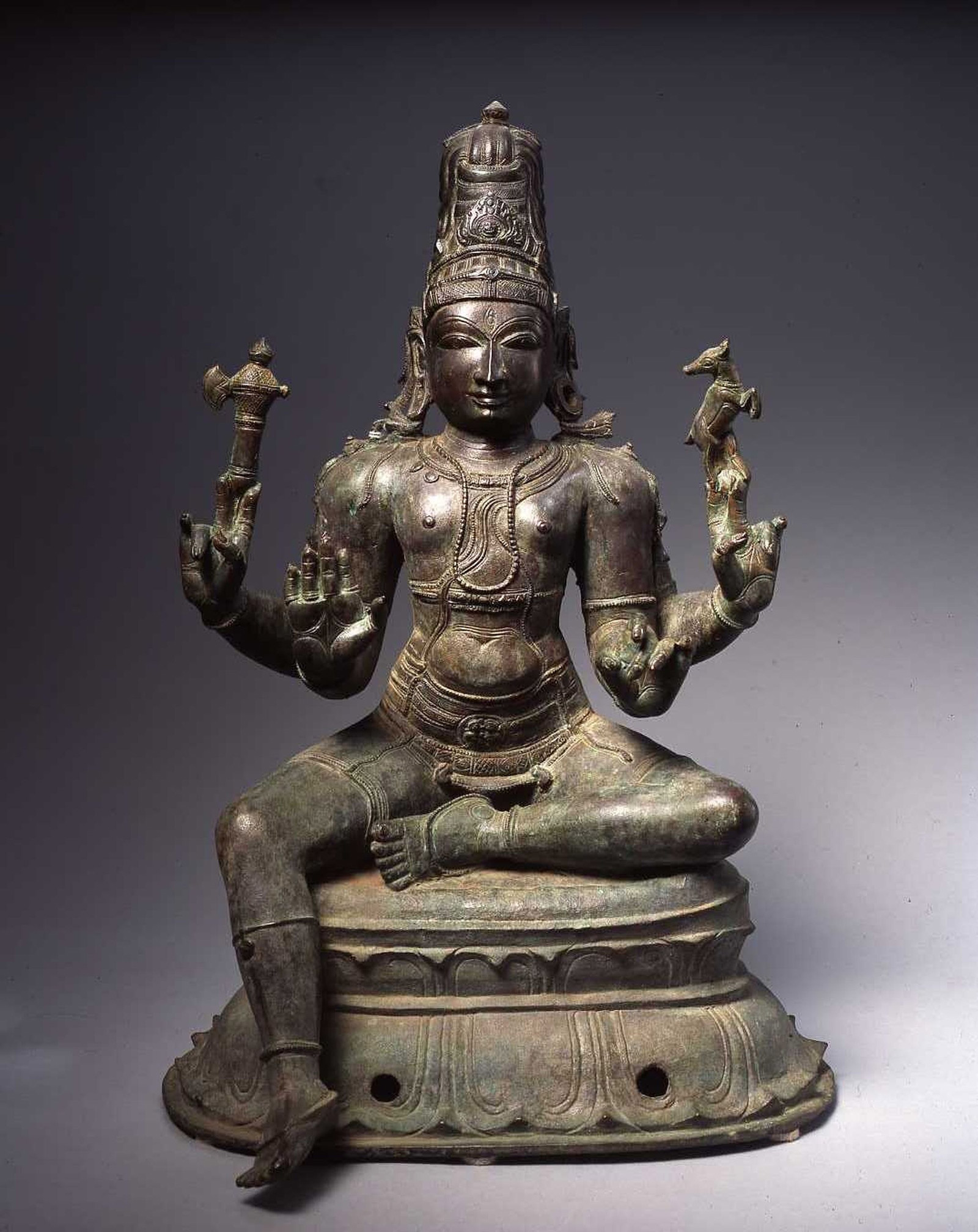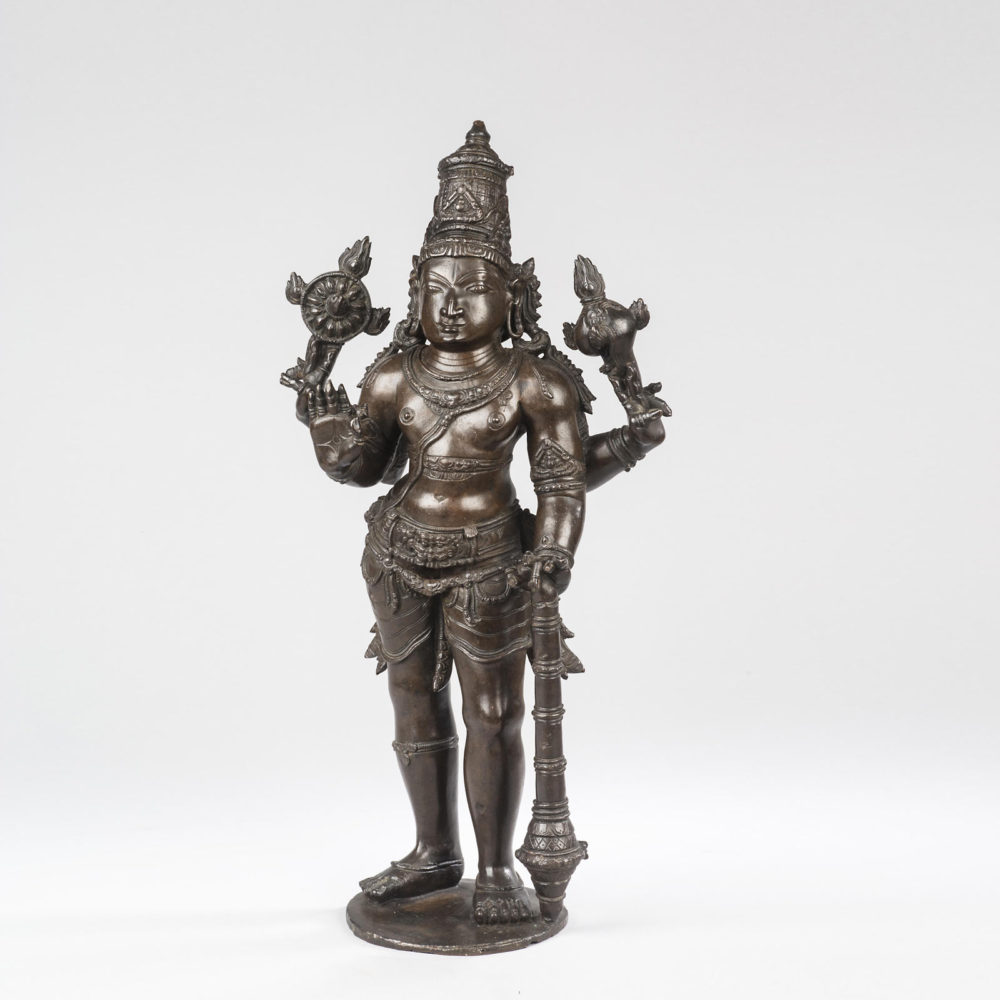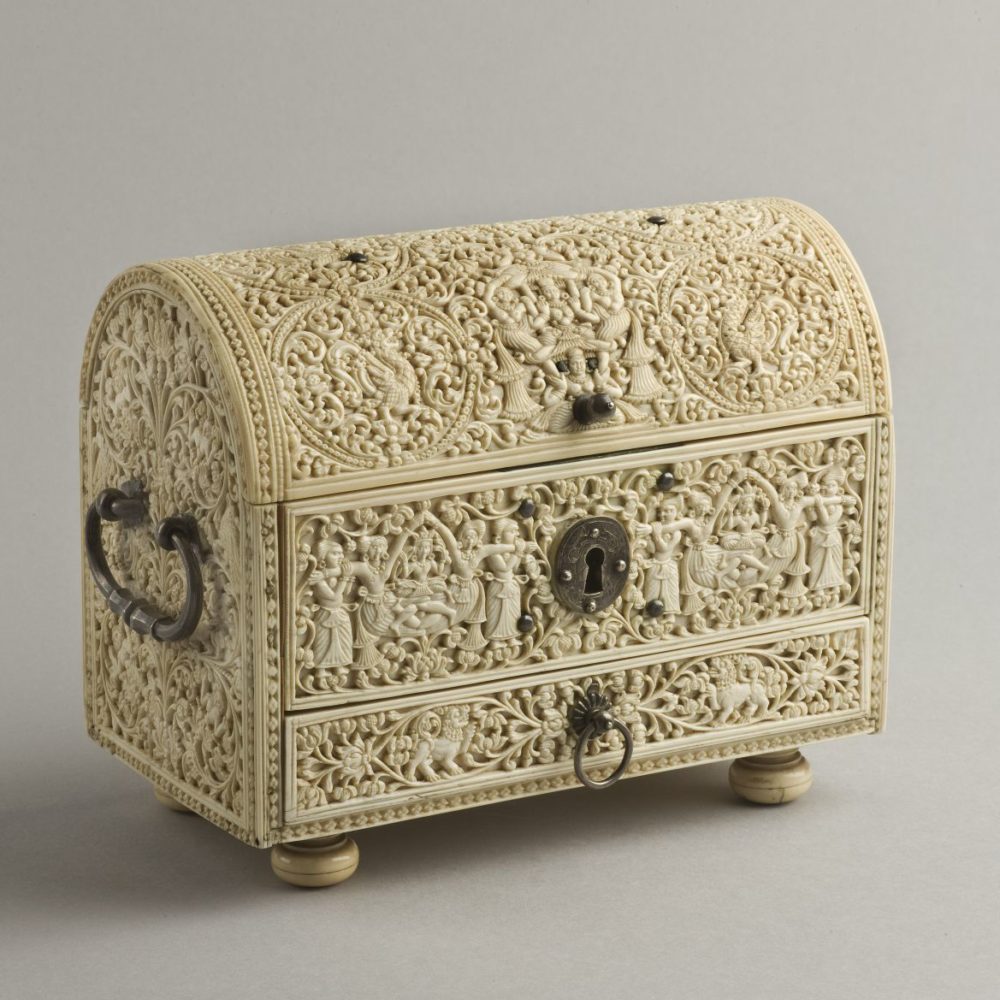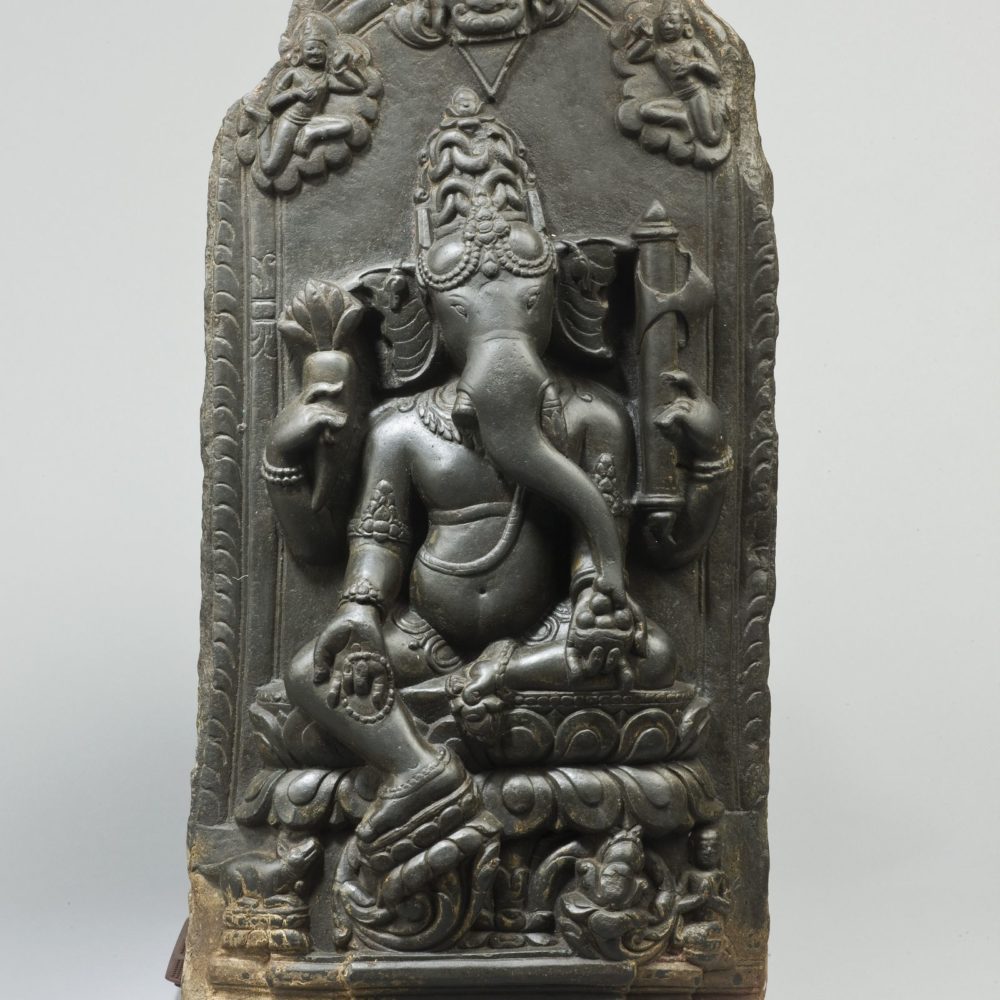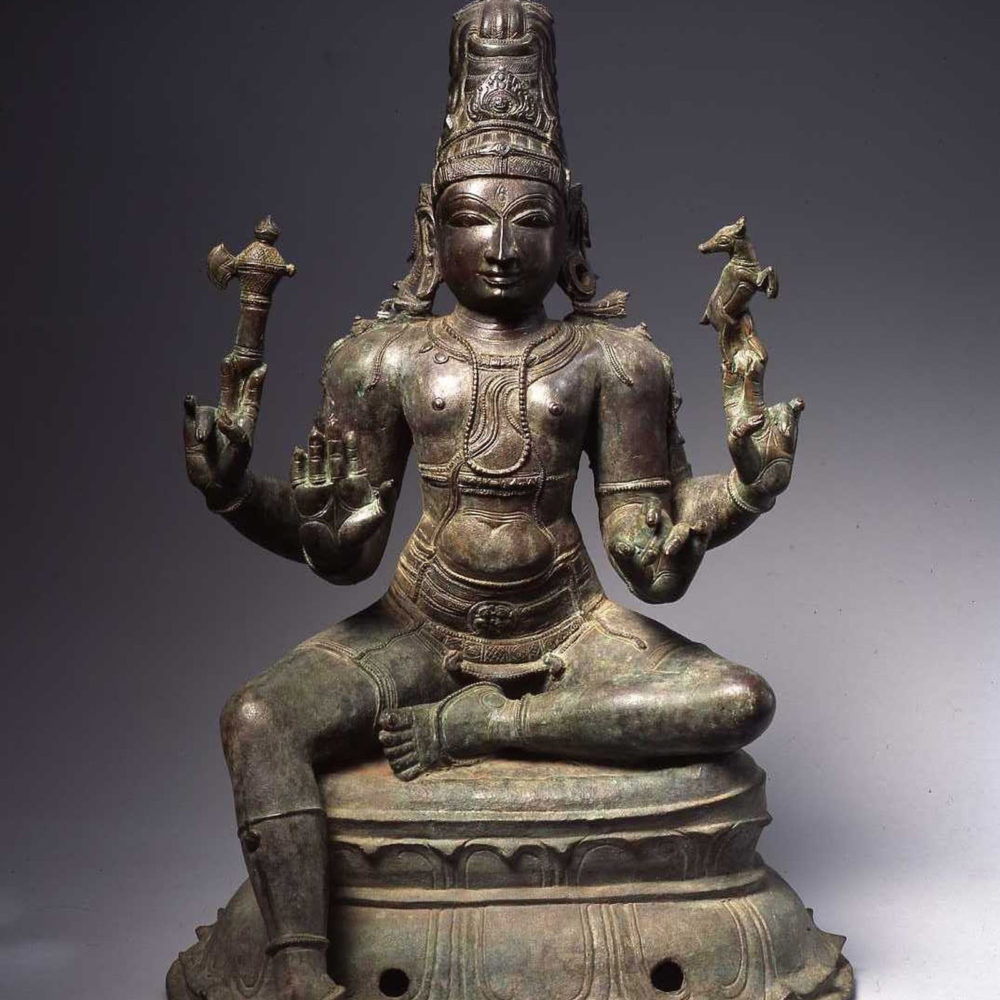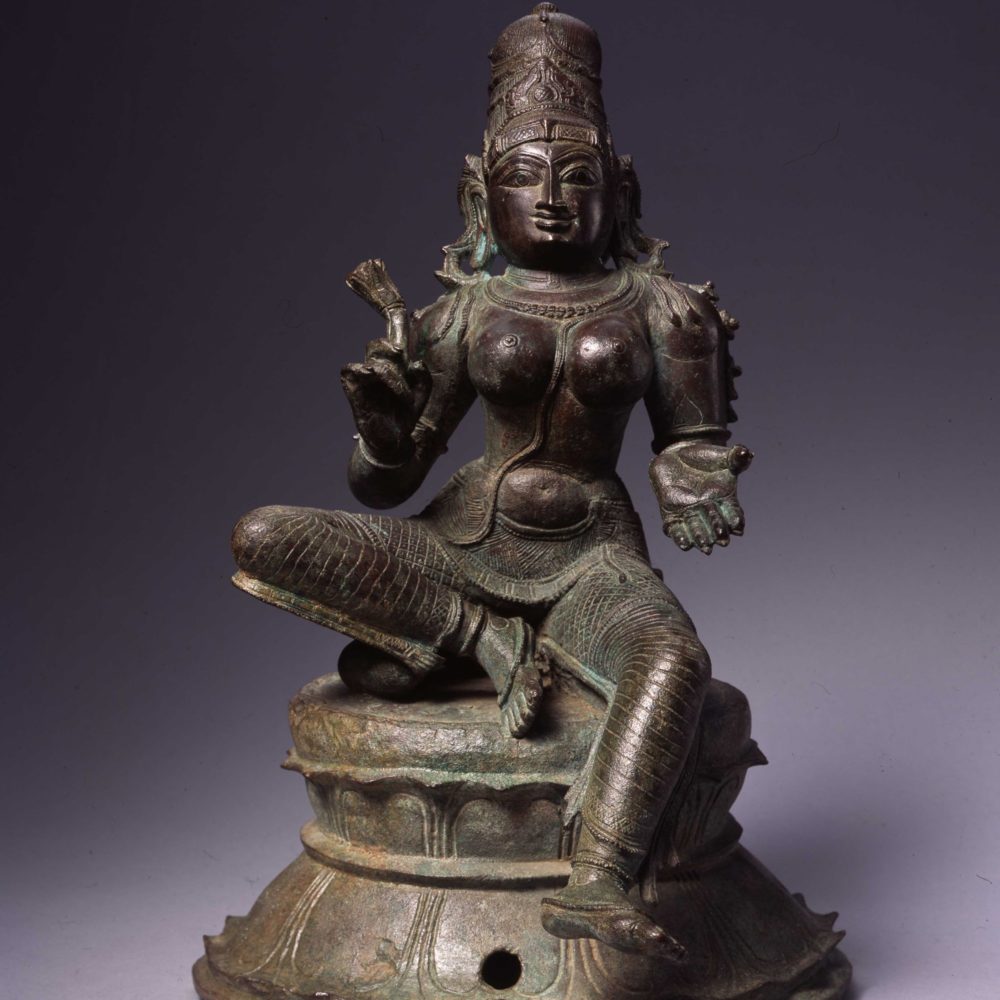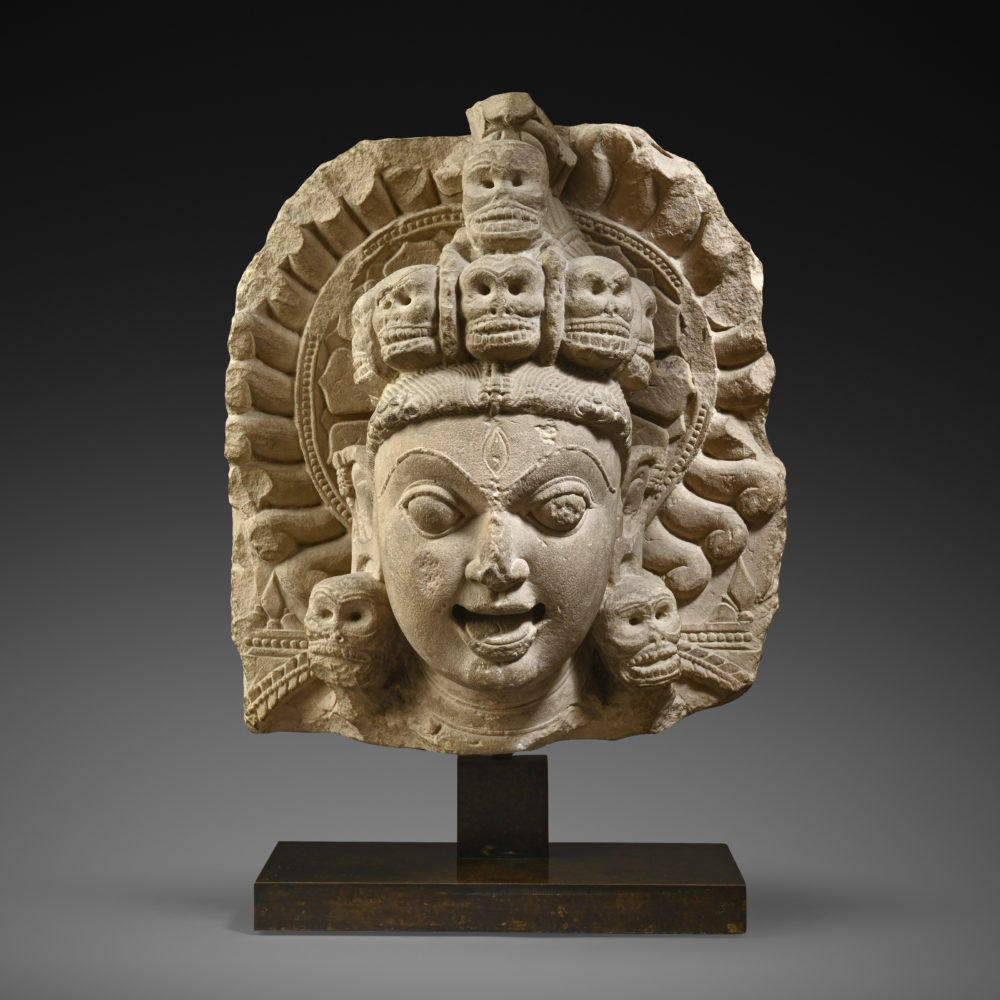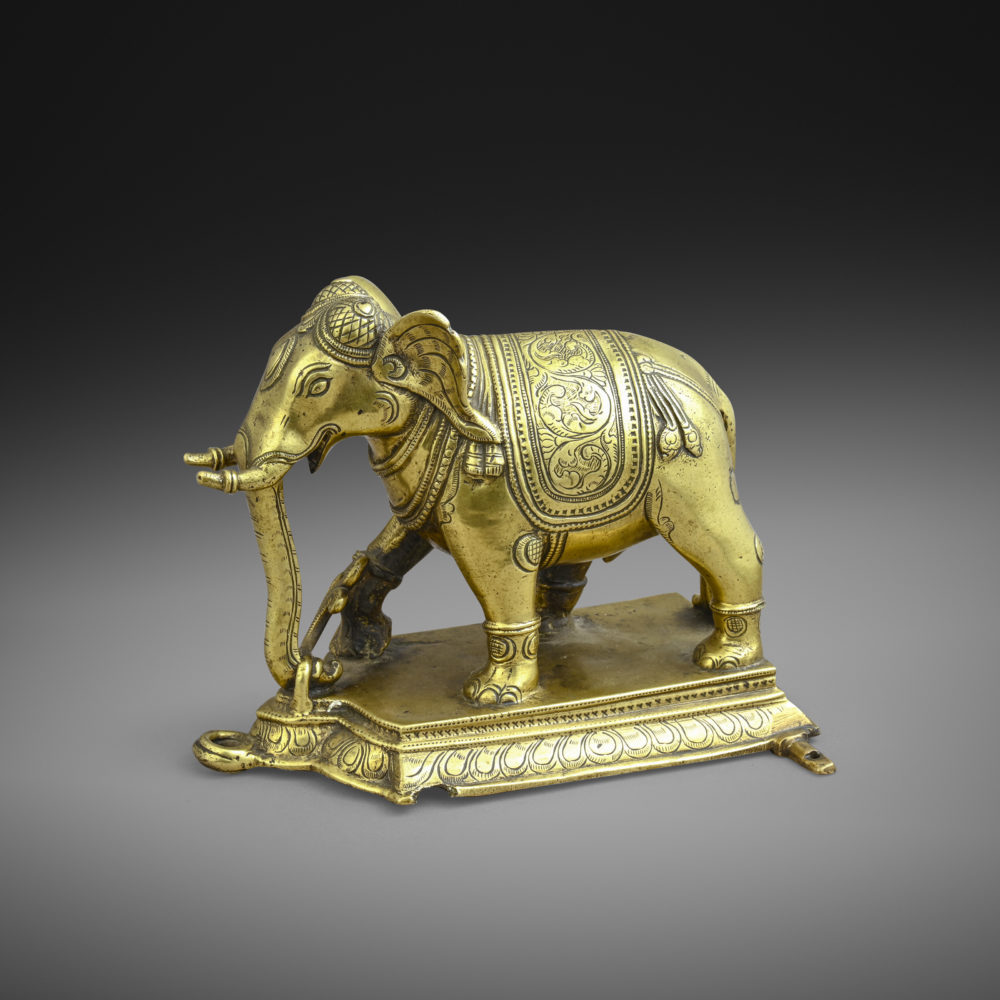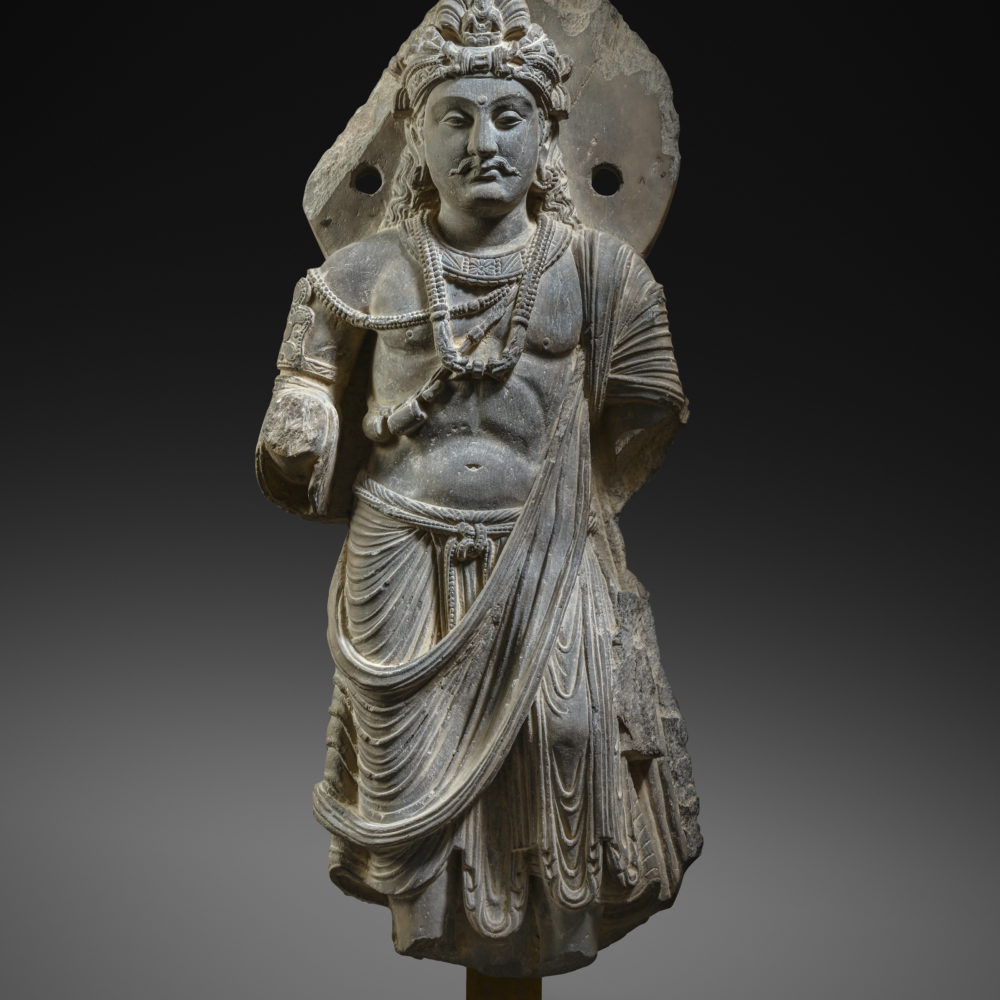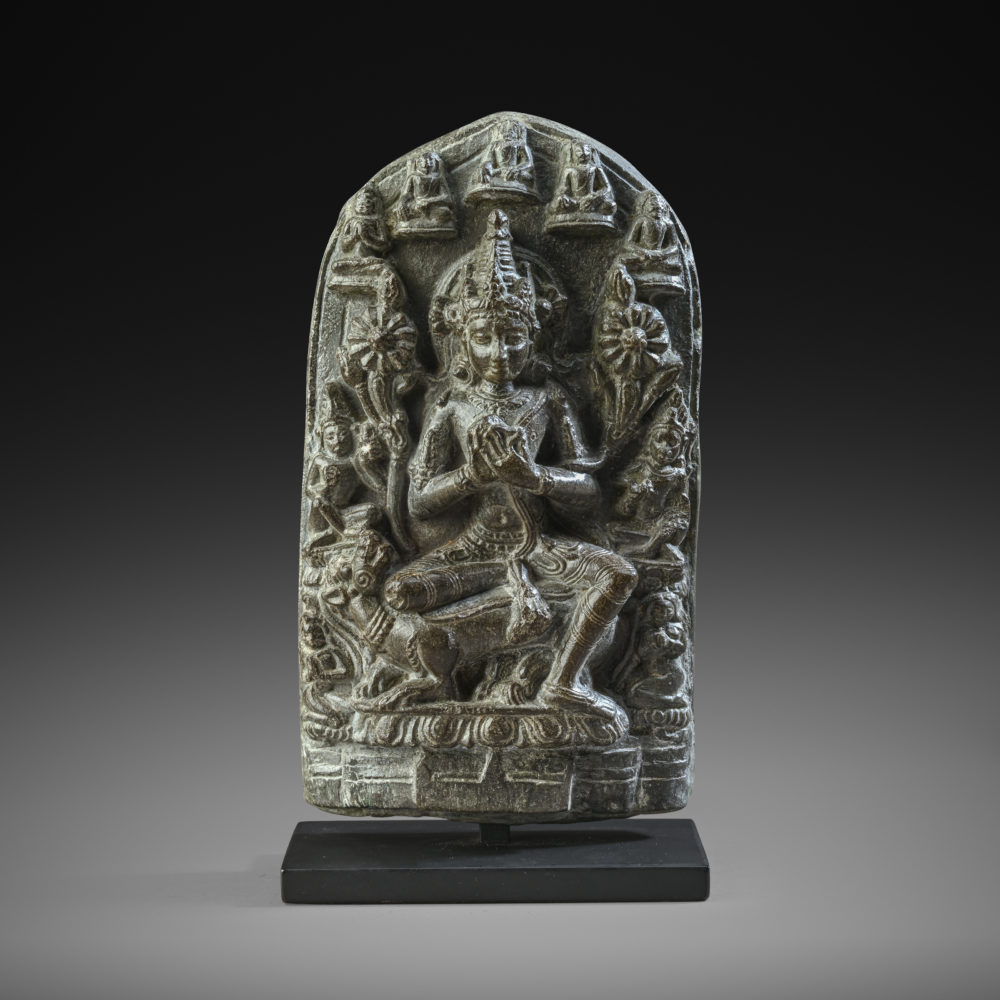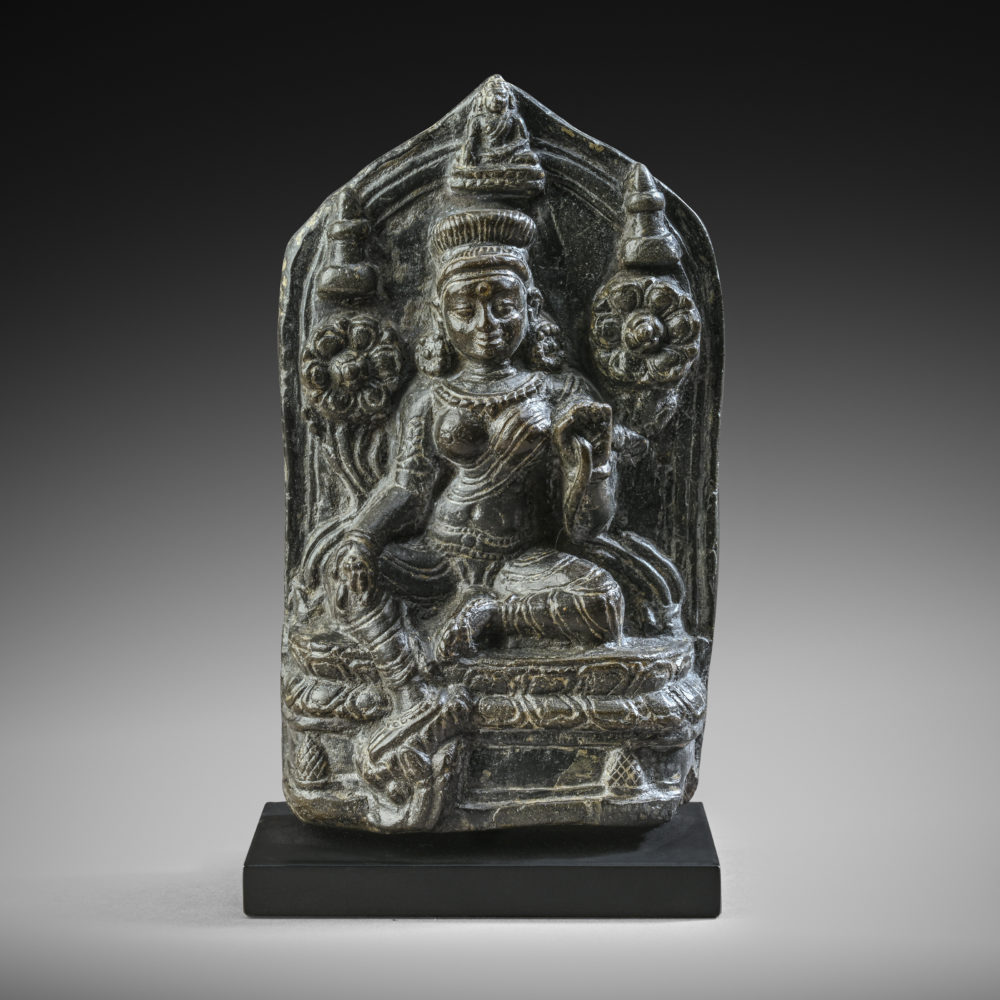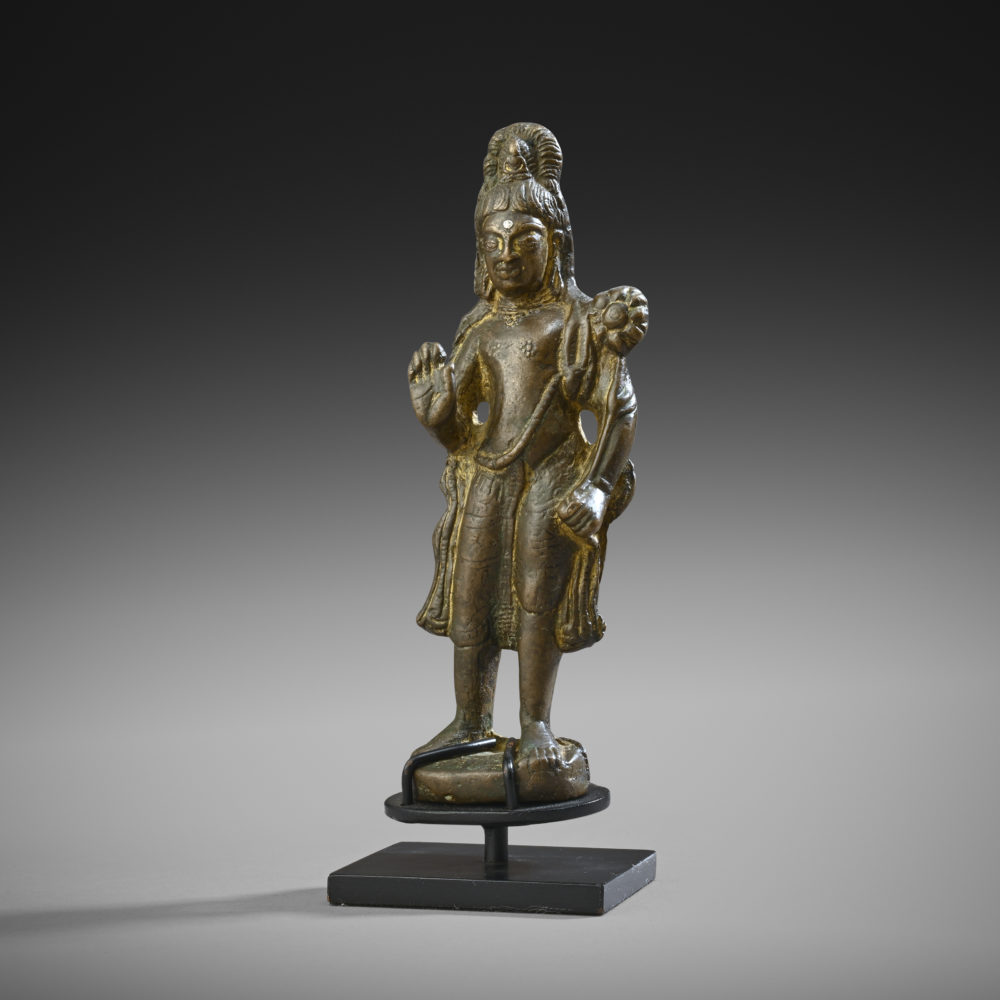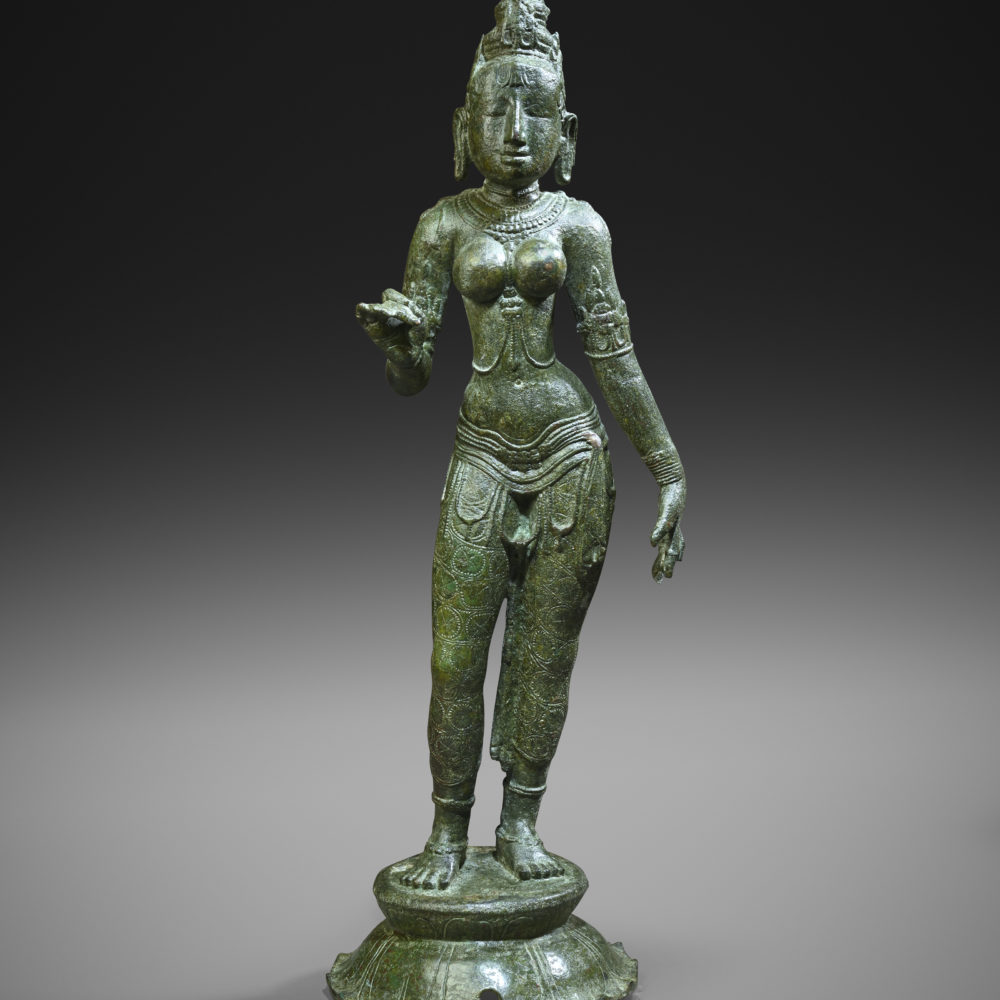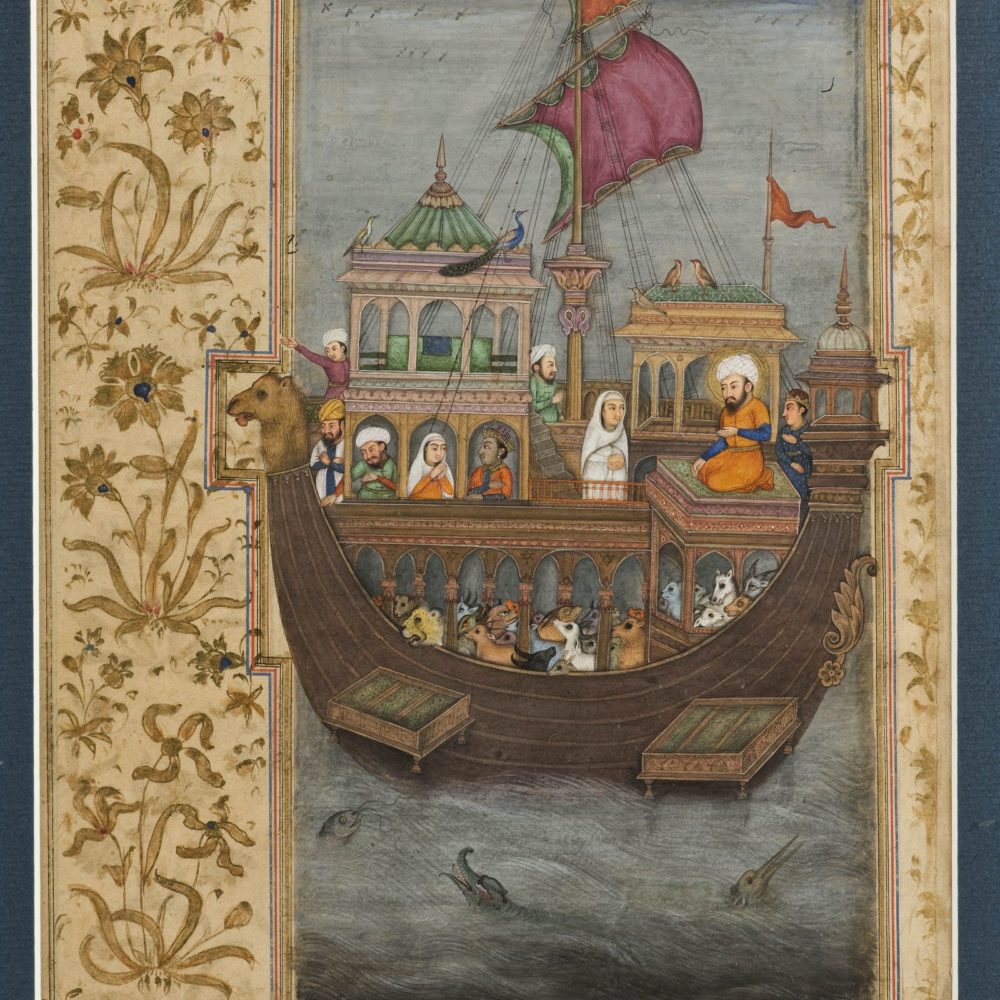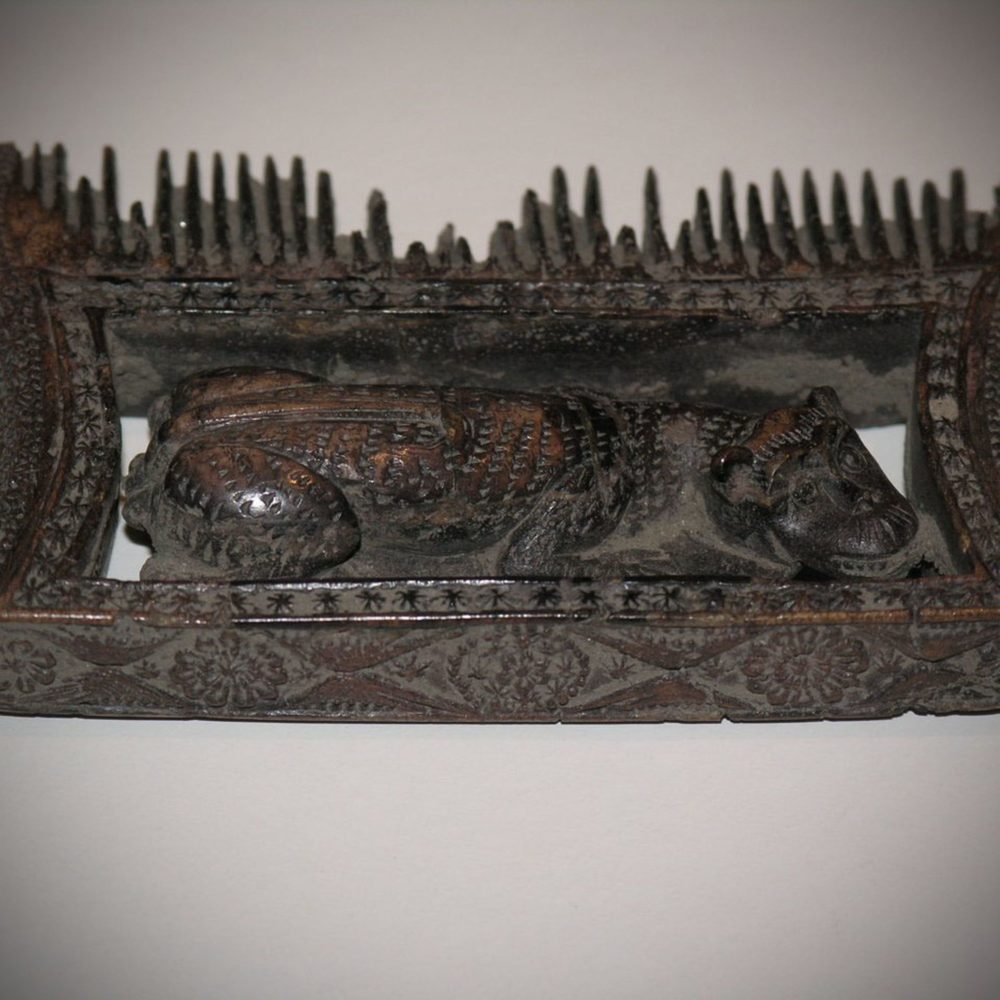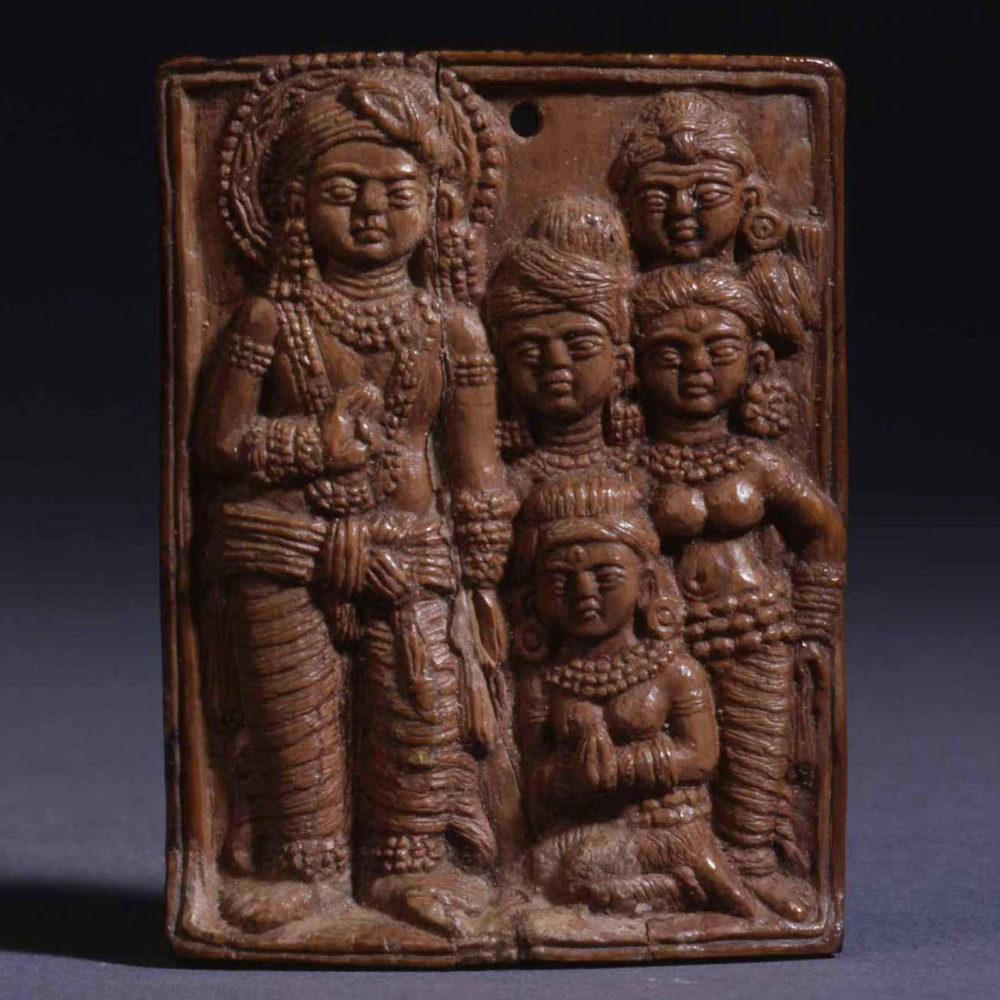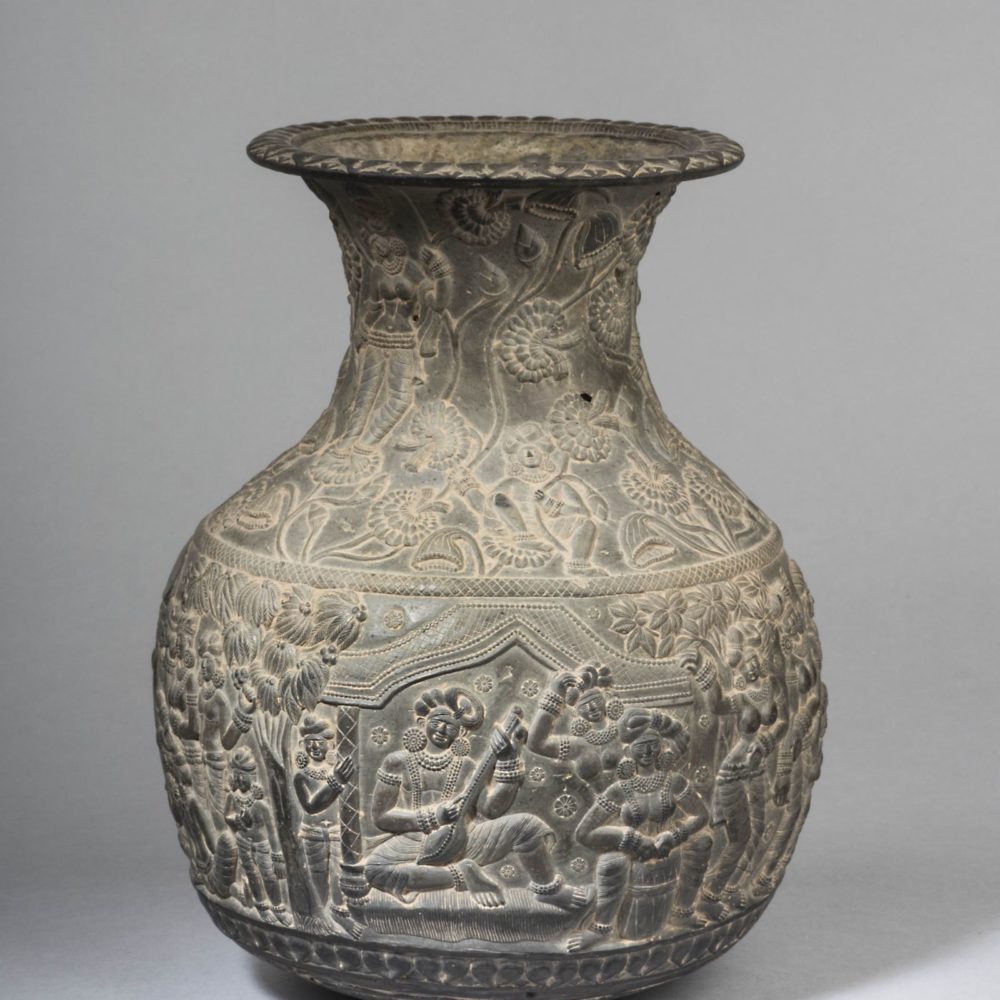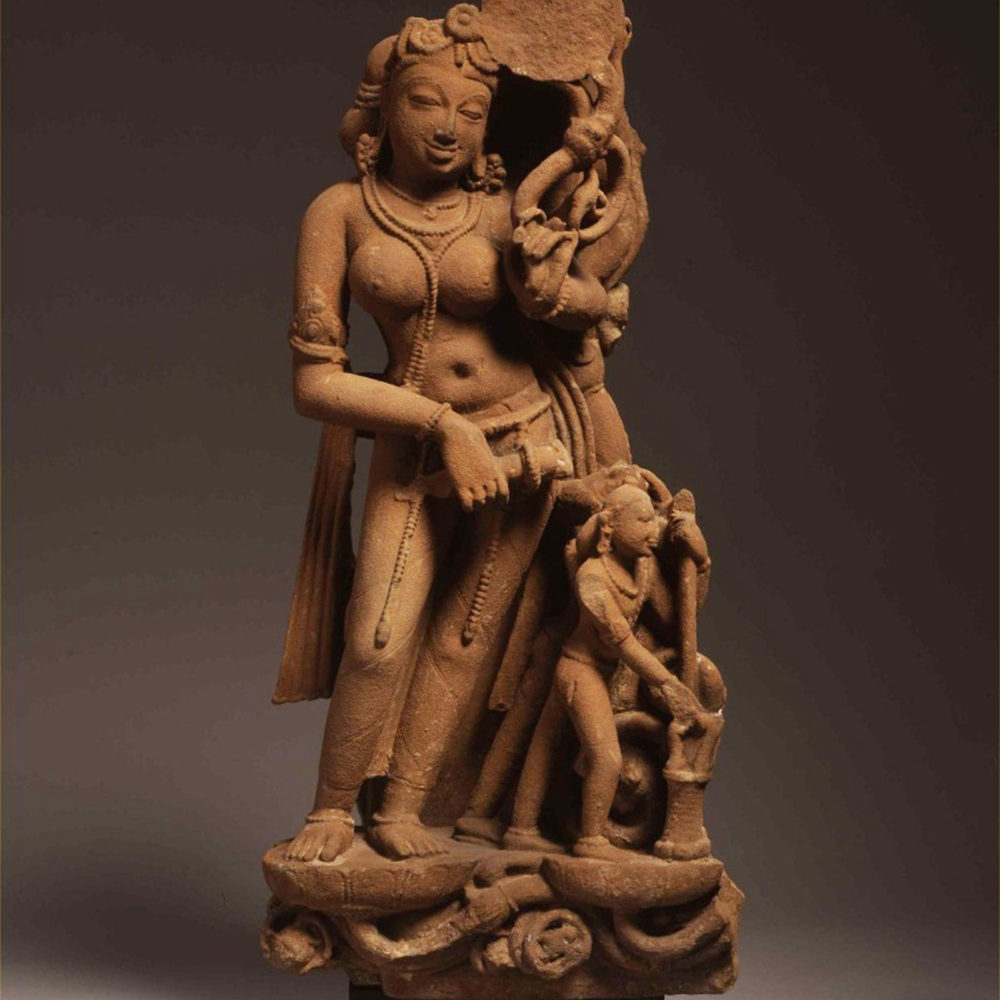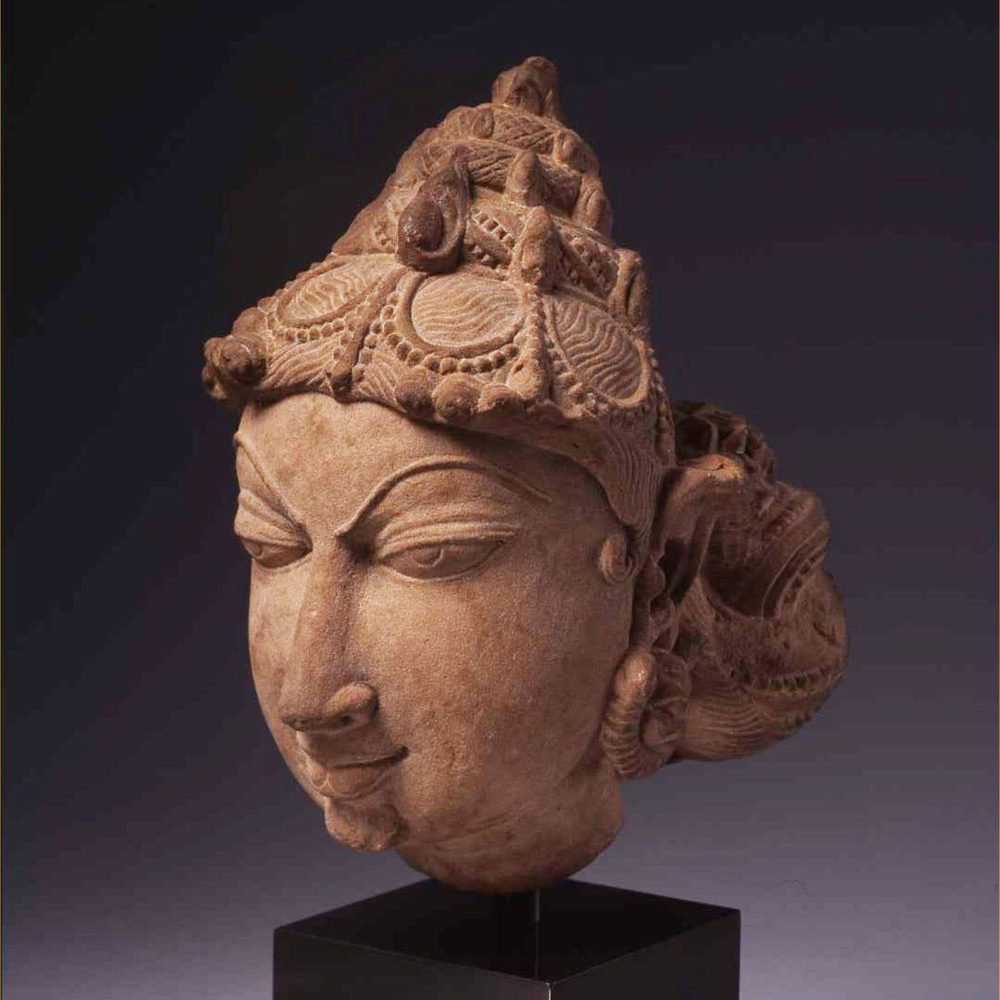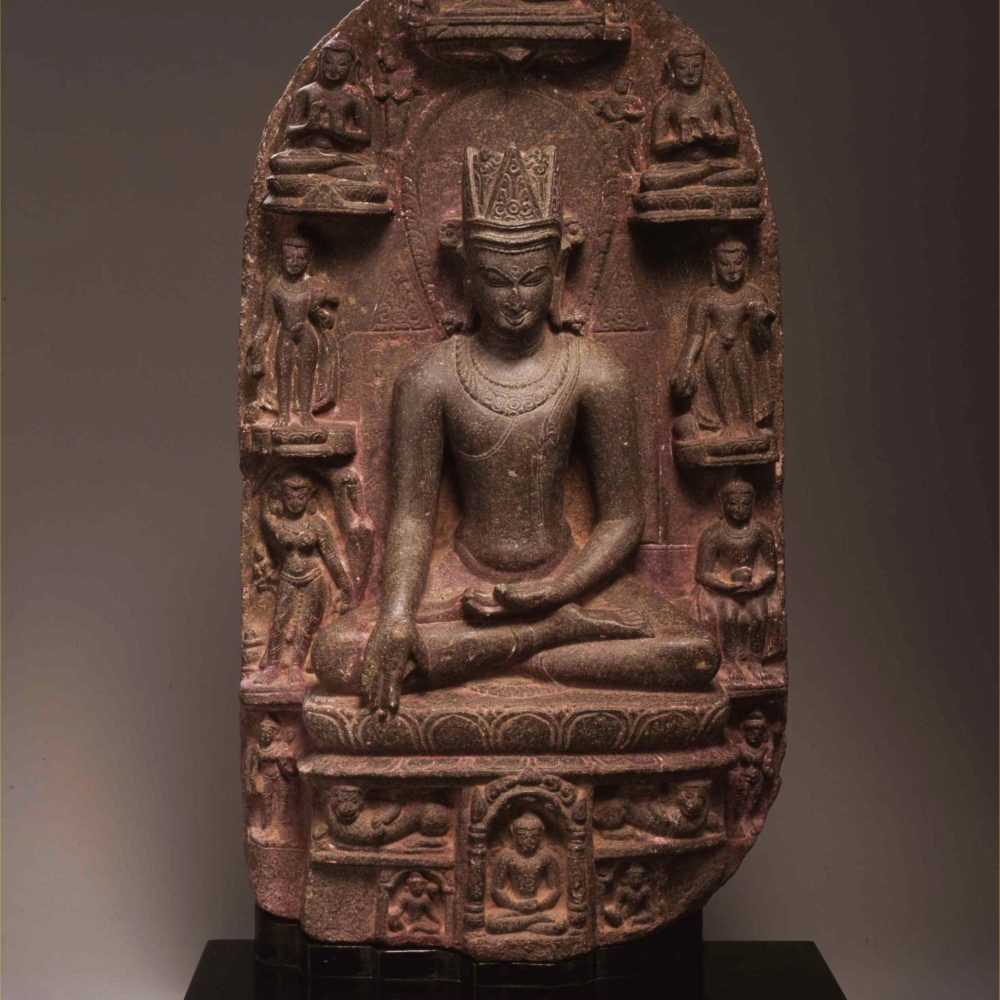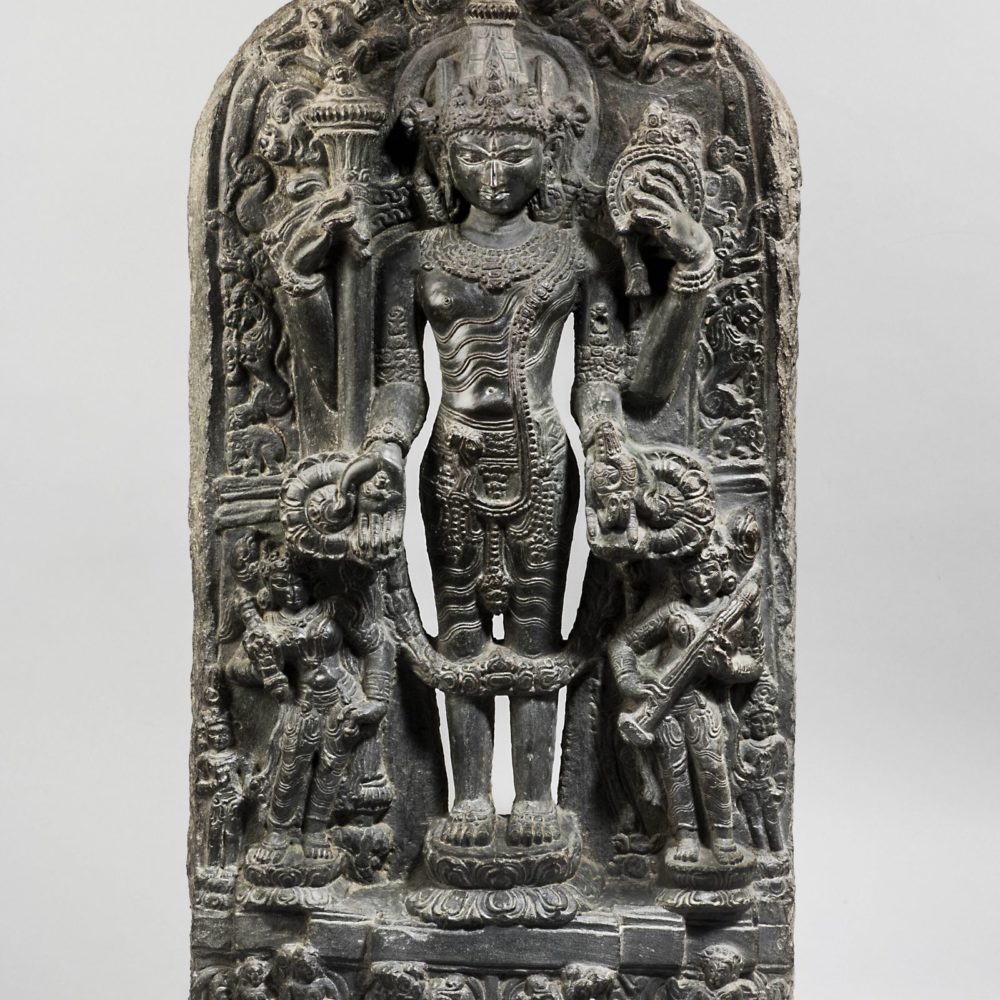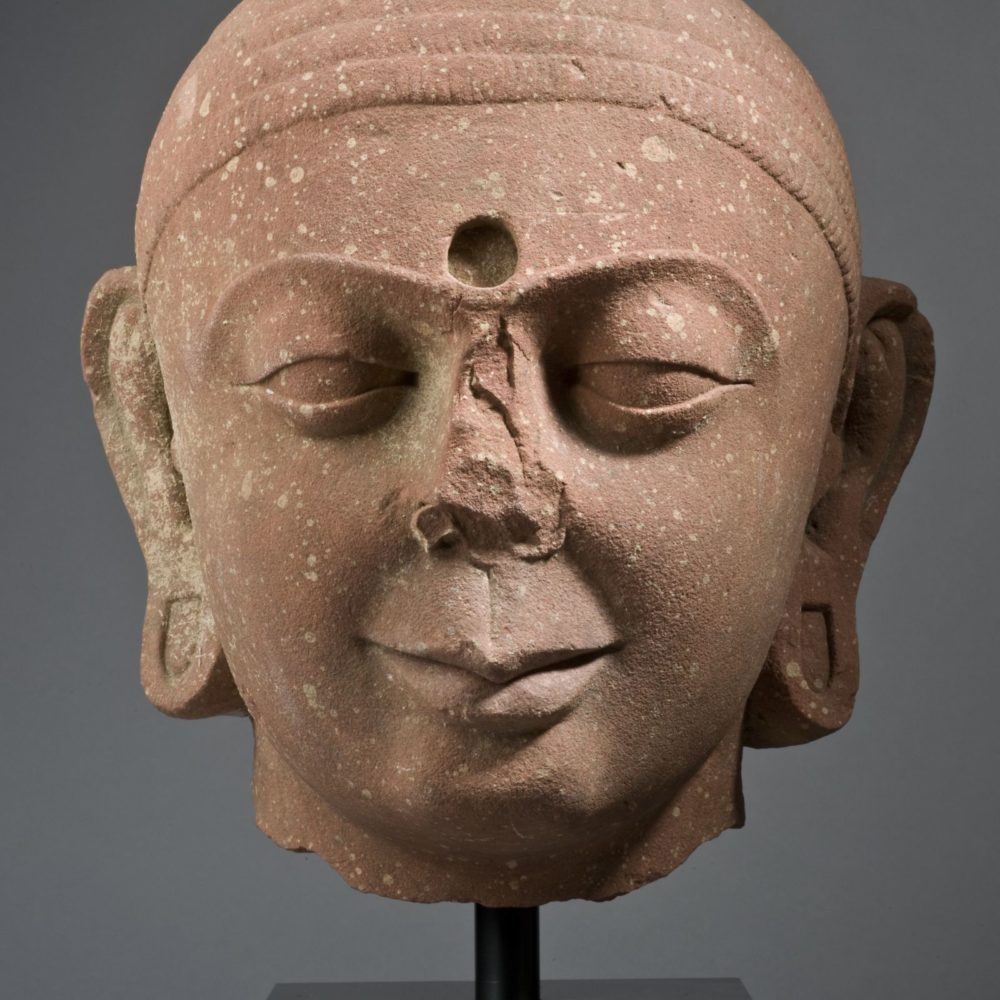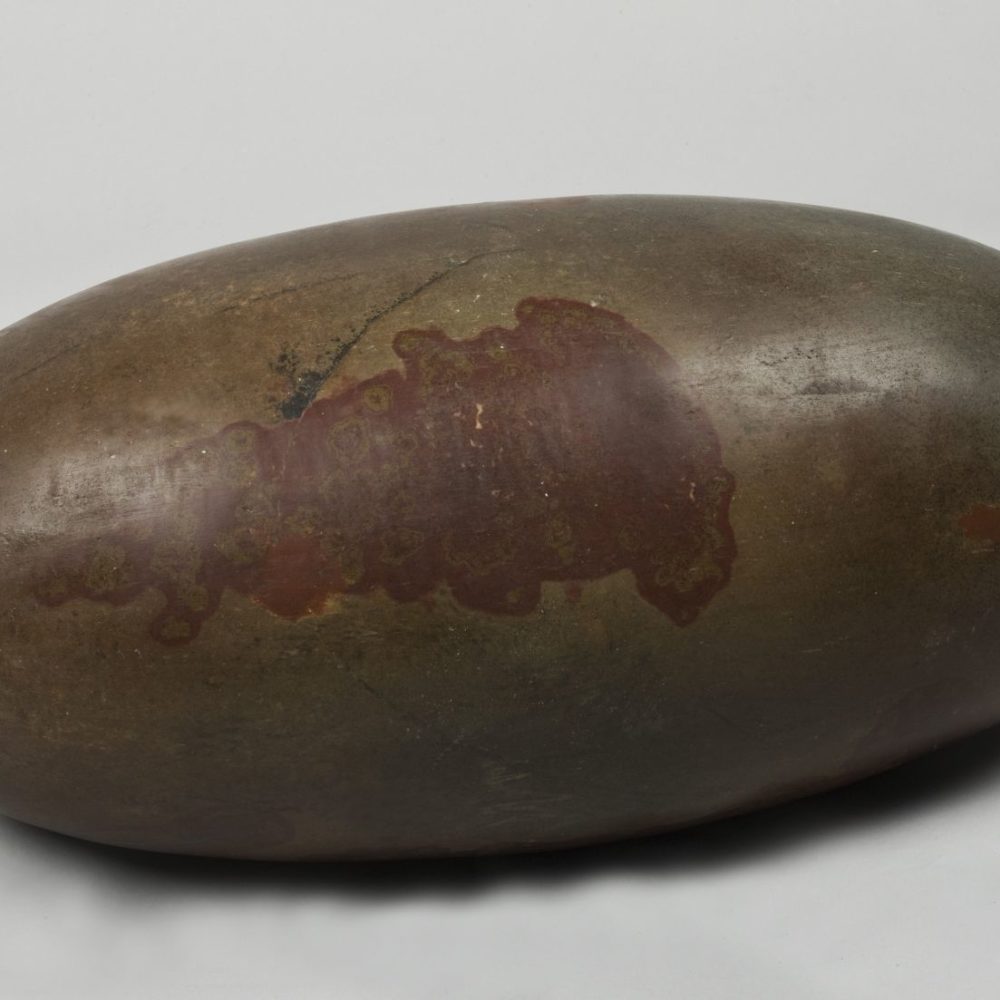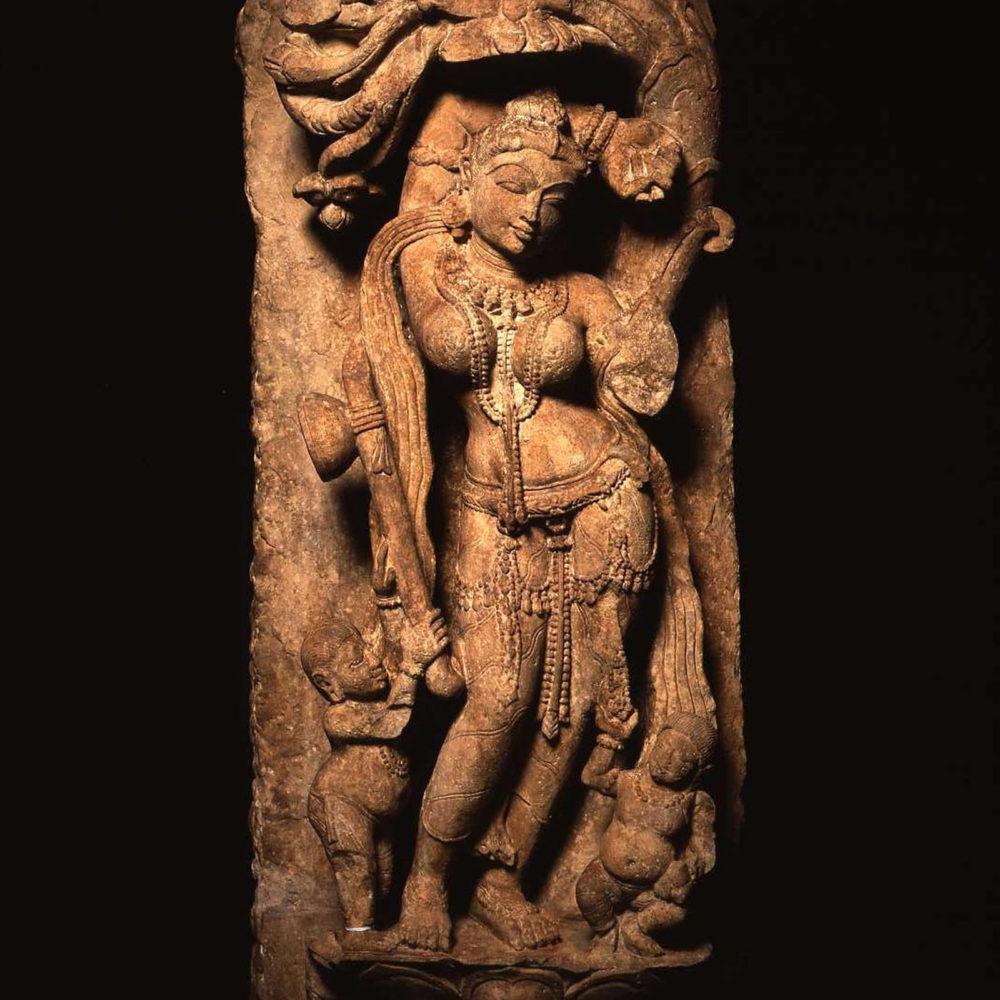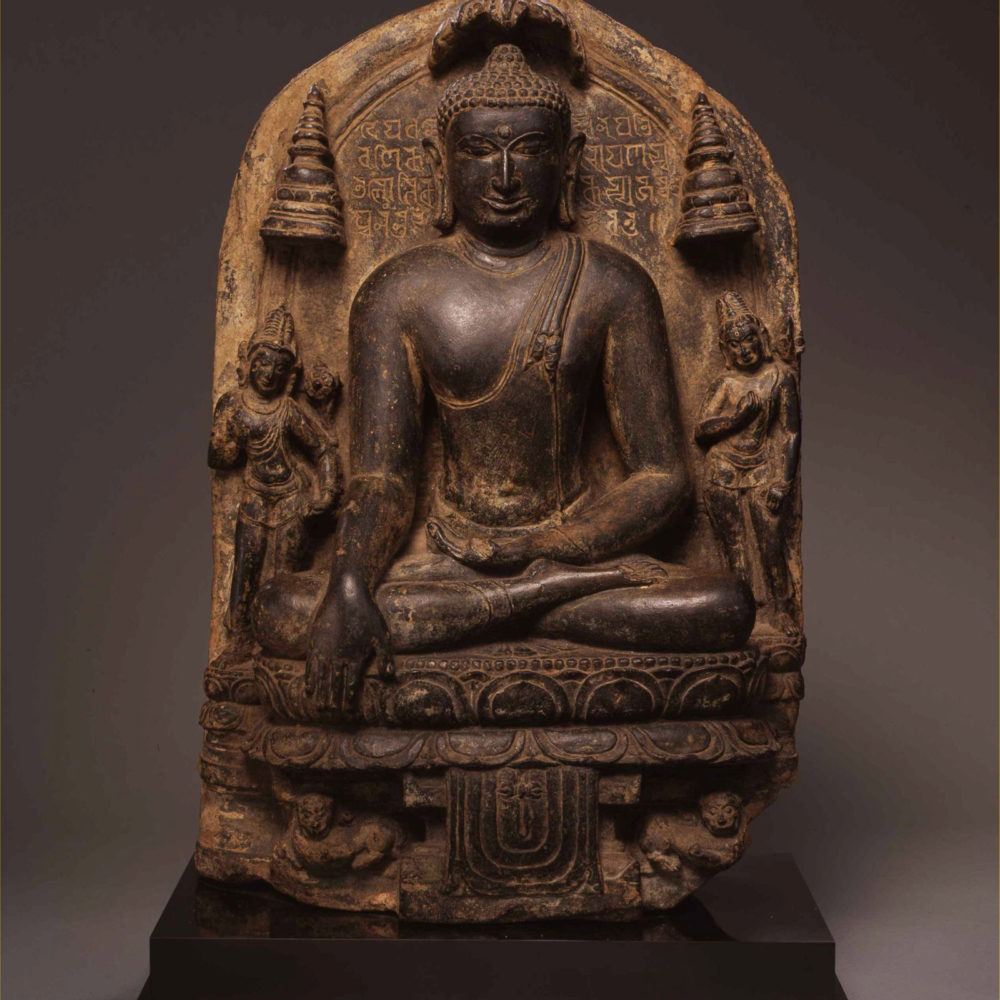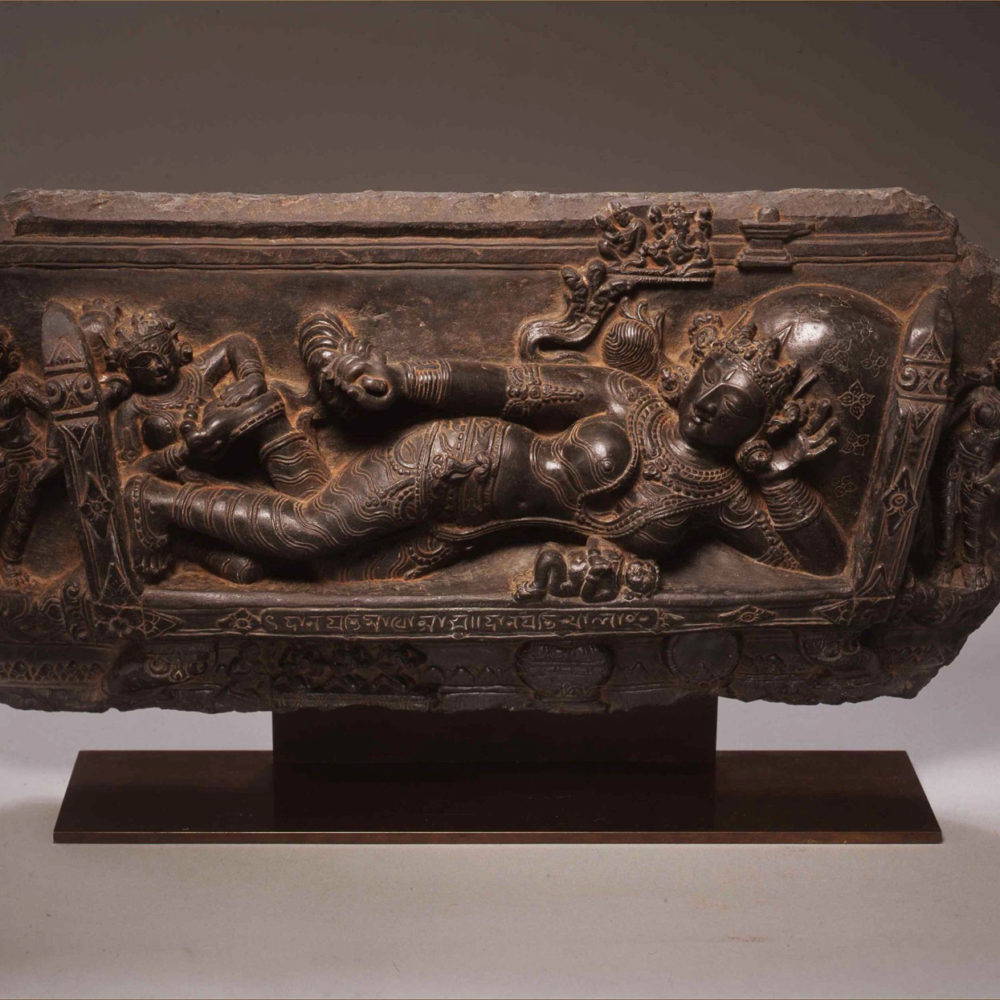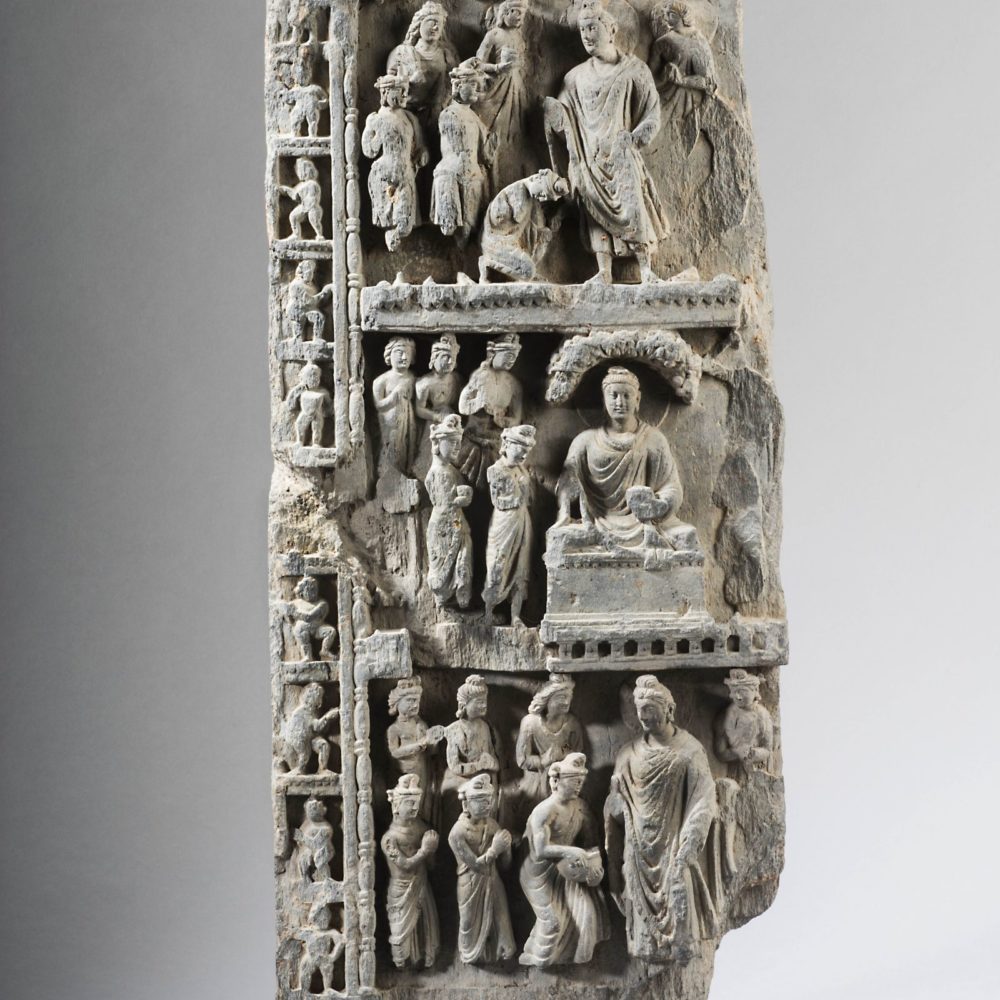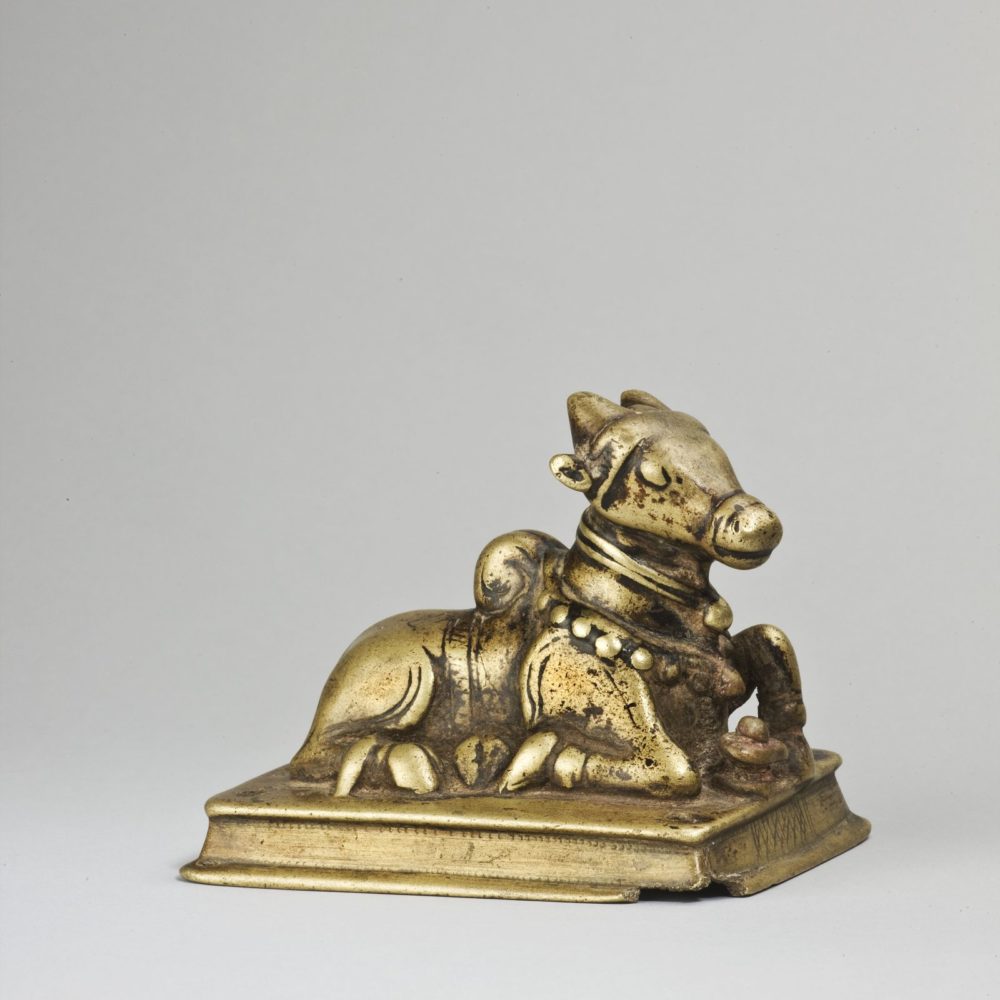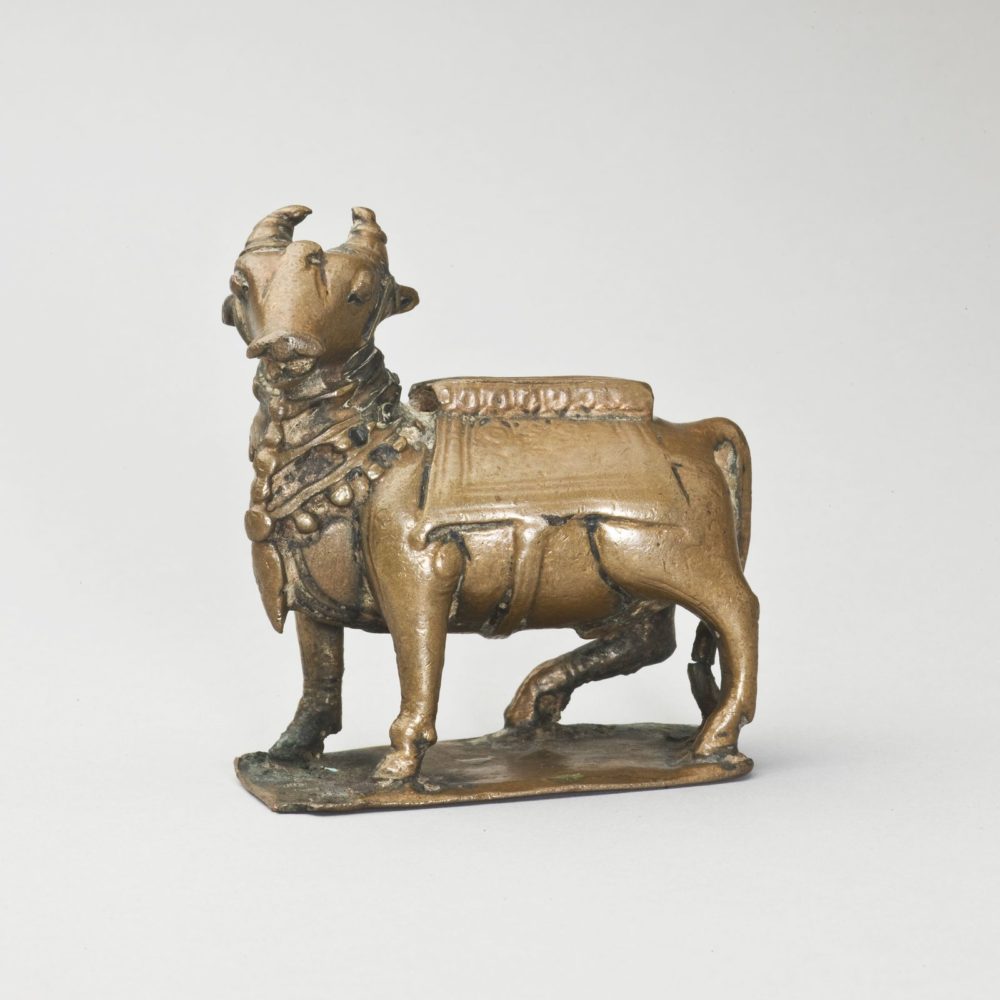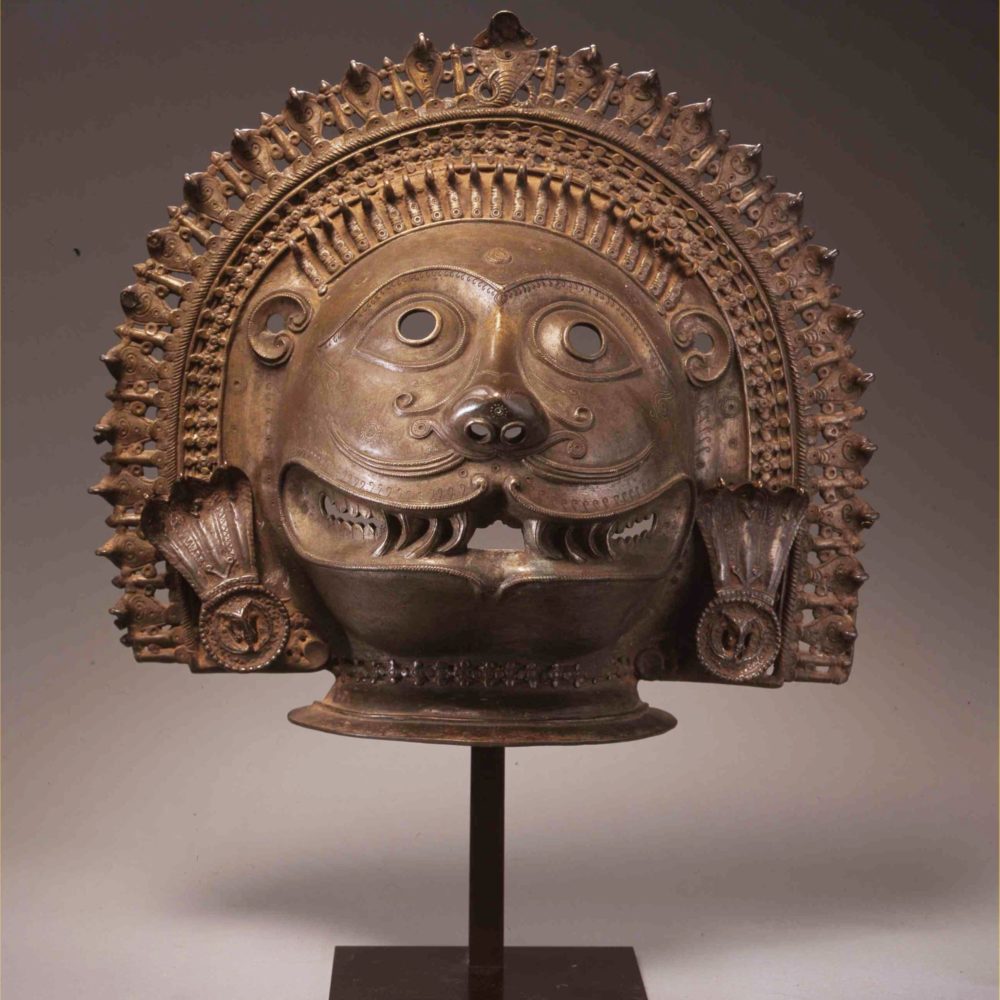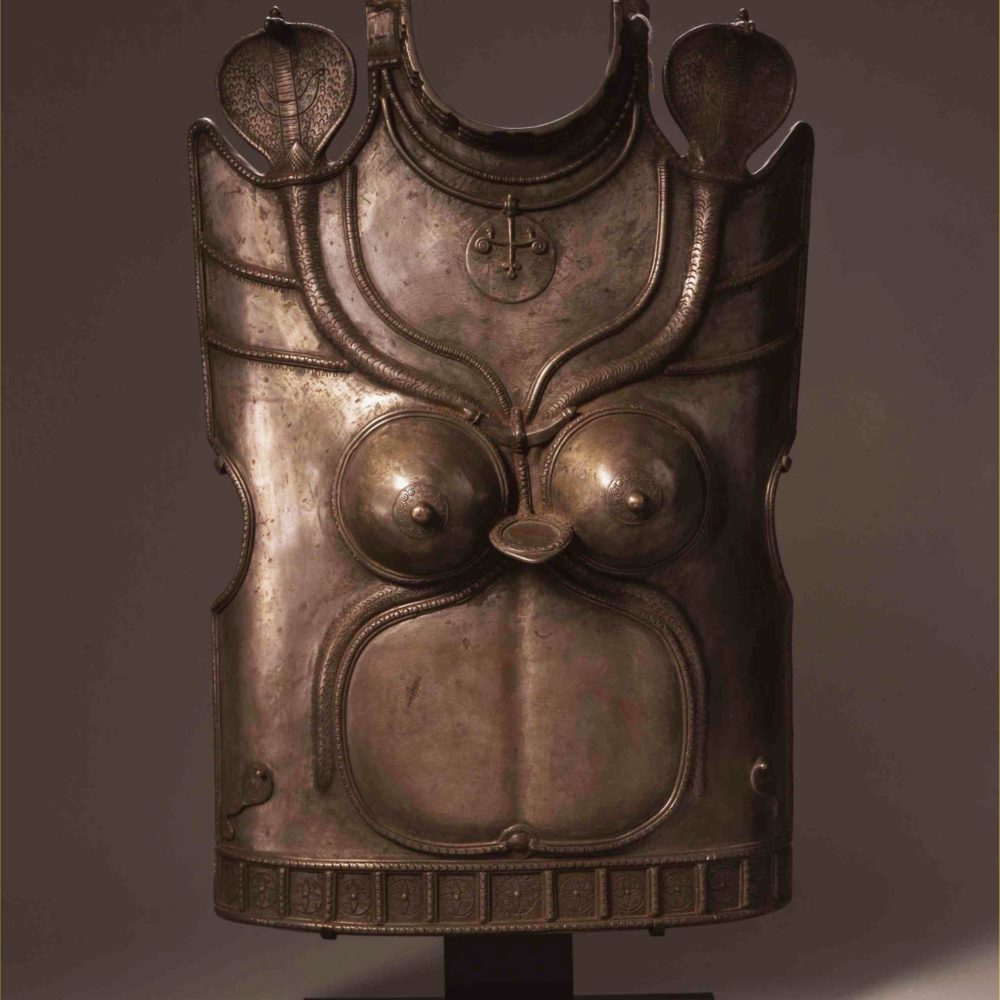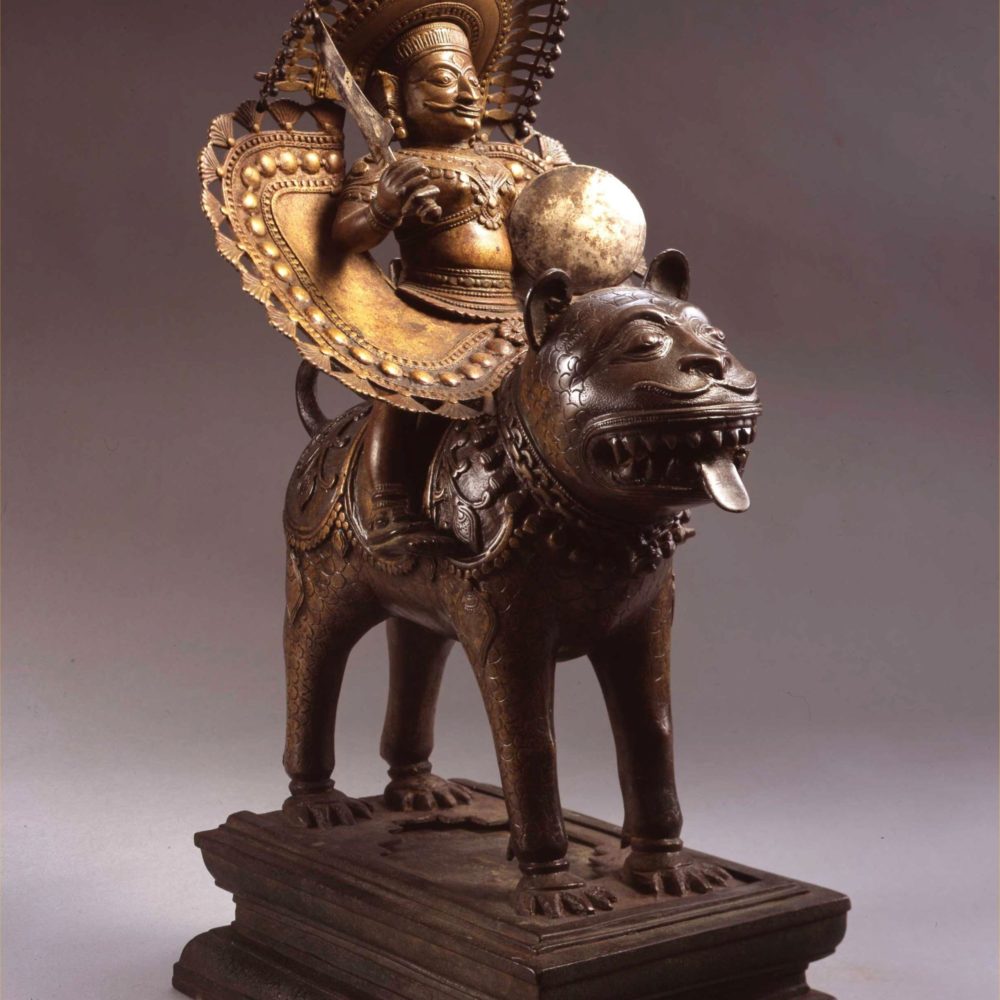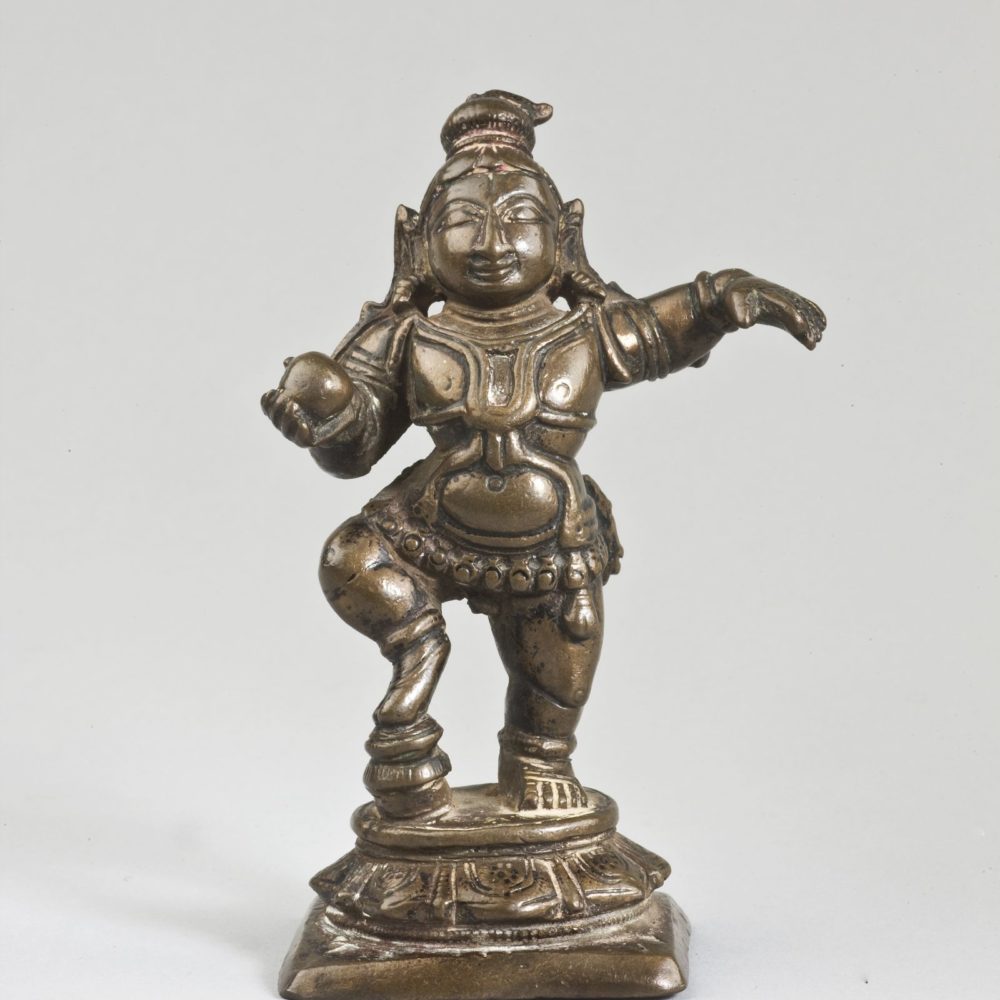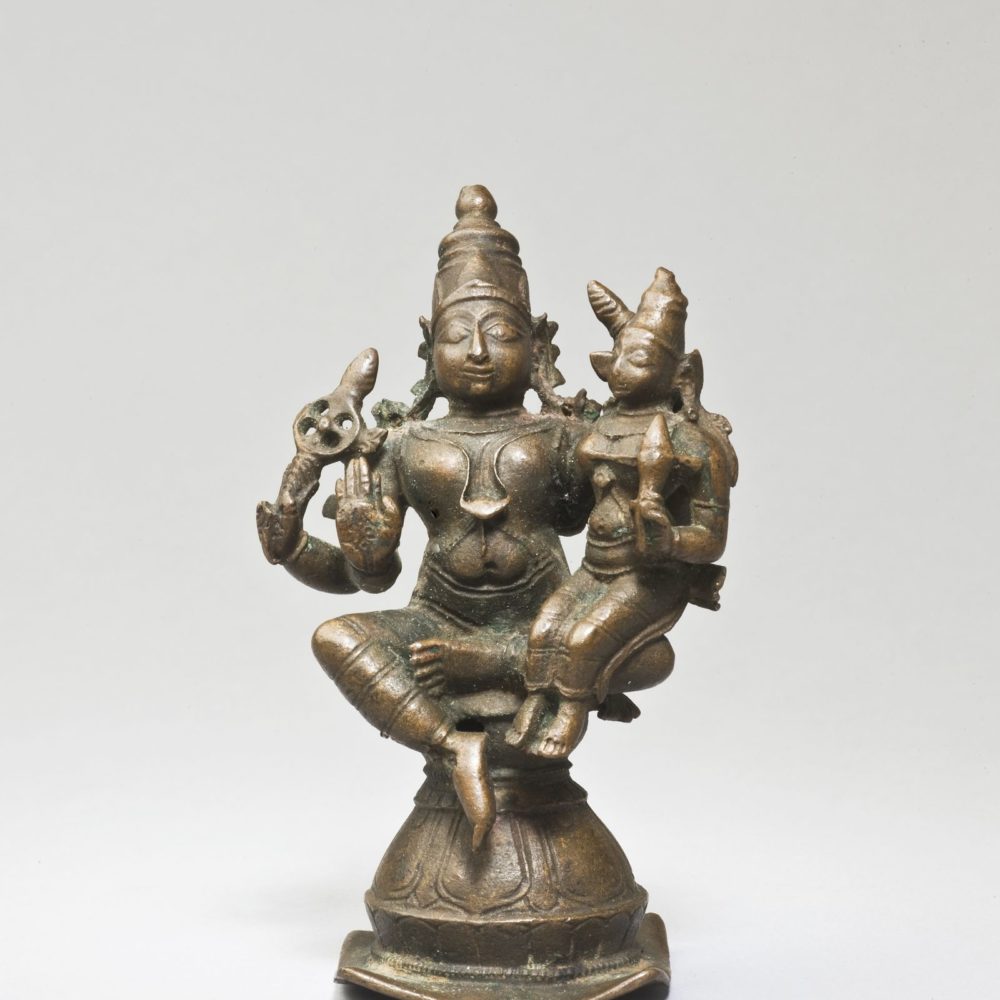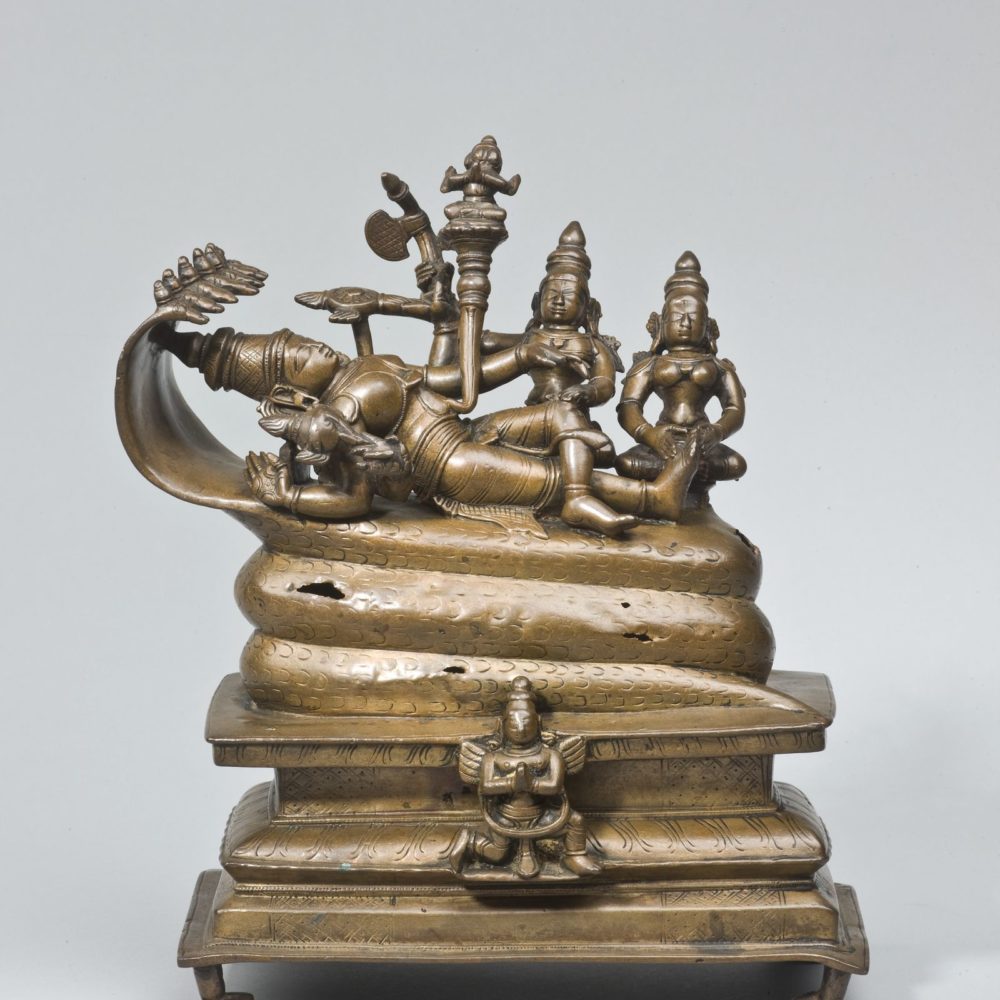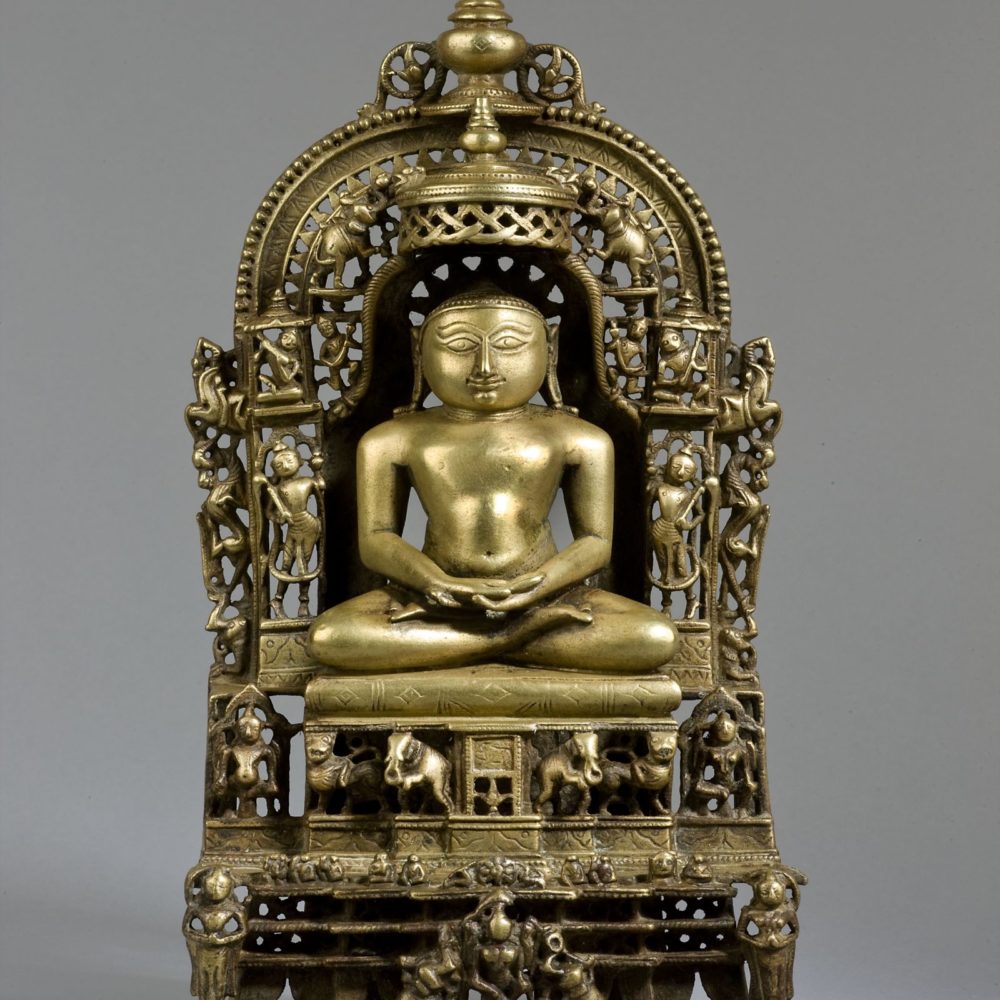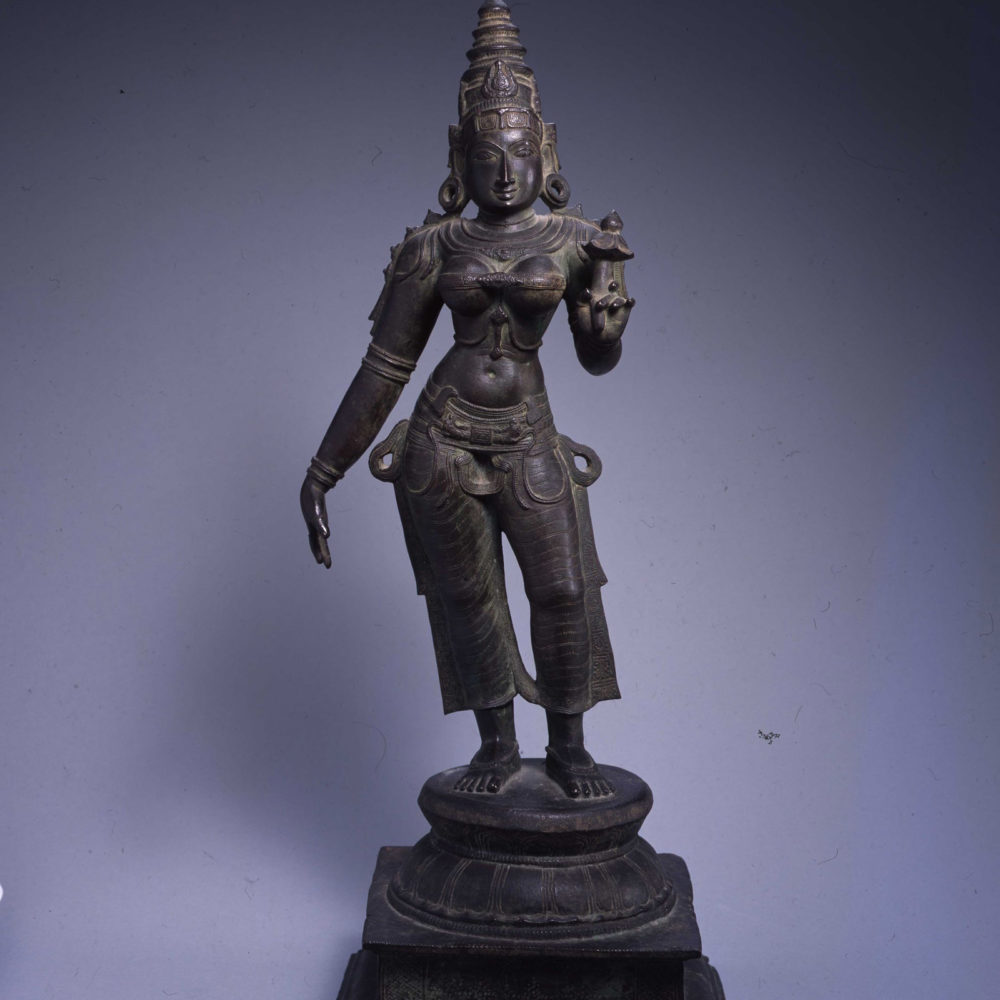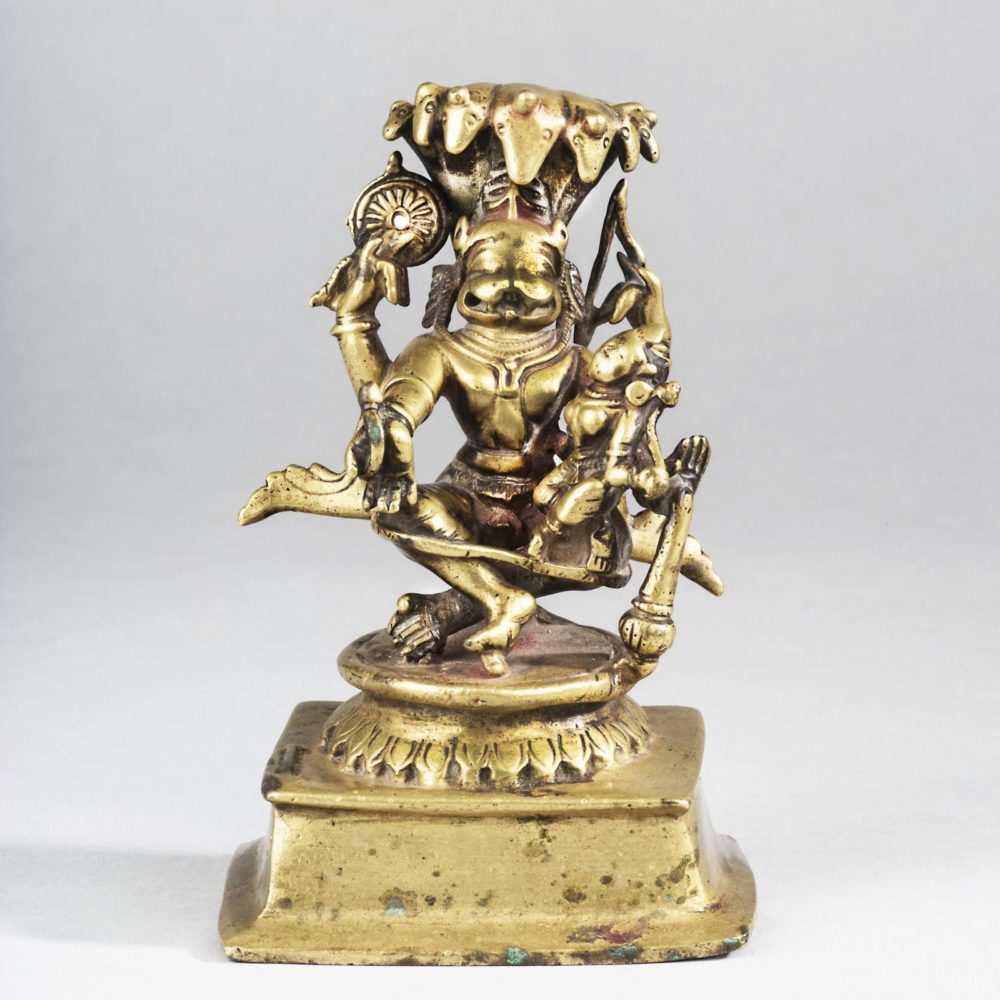A Vijayanagara bronze figure of Shiva
14th century, South India
Height: 49 cm, 19.3 inches
Shiva is known as ‘the destroyer’ and along with Brahma ‘the creator’ and Vishnu ‘the conserver’ he completes the ‘Trimurti’ or ‘three part form’ of God, in the Hindu pantheon. He is also called ‘the supreme one’ and ‘the transformer’ – destroying in order to re-create.
The four-armed deity is seated in lalita asana on a lotus throne that would have been attached to a rectangular base or bhadrapeedam; such a base would have supported two further figures of Uma (Parvati) and Skanda, one of their sons – this grouping being known as Somaskanda. Ganesh, the other son, would not have been represented as he is in Northern Indian sculptures of the family group.
The hand held attributes are a battle-axe (right hand) and an antelope (left hand), whilst his front right hand is in abhaya mudra, the gesture of reassurance or ‘do not fear’, and the left in katakamukha. Shiva is dressed in a short dhoti and adorned with the sacred cord, necklaces, armbands, anklets, and the siraschakra lotus flower at the back of his head; his hair is piled in a tall jata-mukuta. The portrayal is of a powerful and robust diety.
Similar Examples
Asian Art at the Norton Simon Museum, Volume I: Art from the Indian Subcontinent, by Pratapaditya Pal, published by Yale University Press in association with The Norton Simon Art Foundation – pages 222 – 224.
The Divine Bronzes, Thanjavur Art Gallery, Tamilnadu, by S. Rathnasabapathy B.A., – pages 111 -115.


